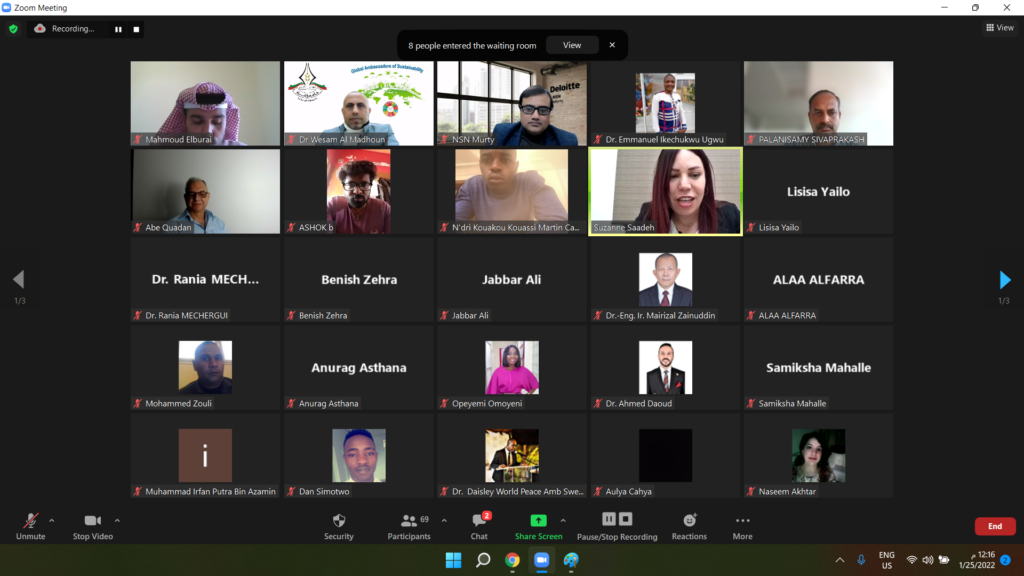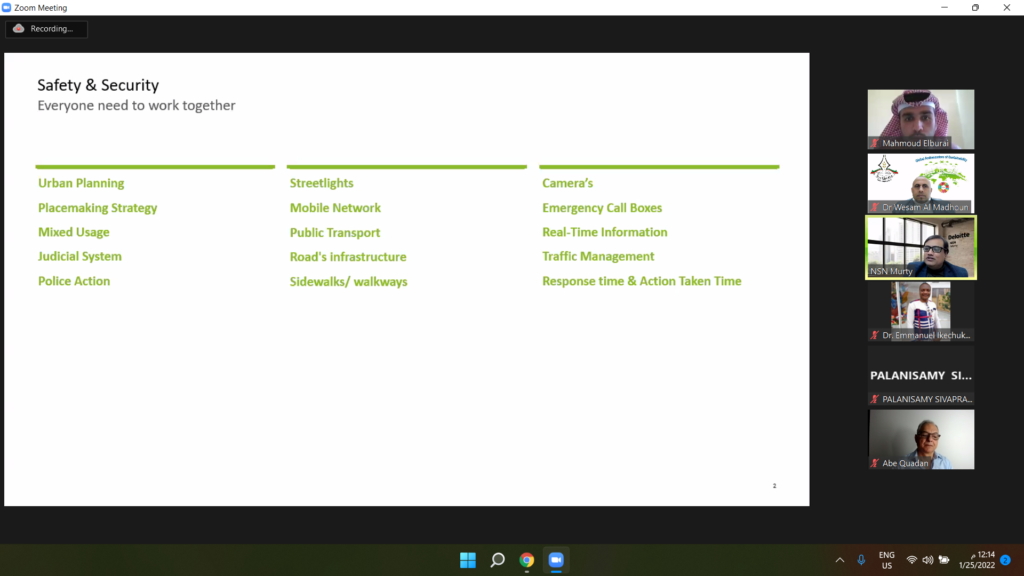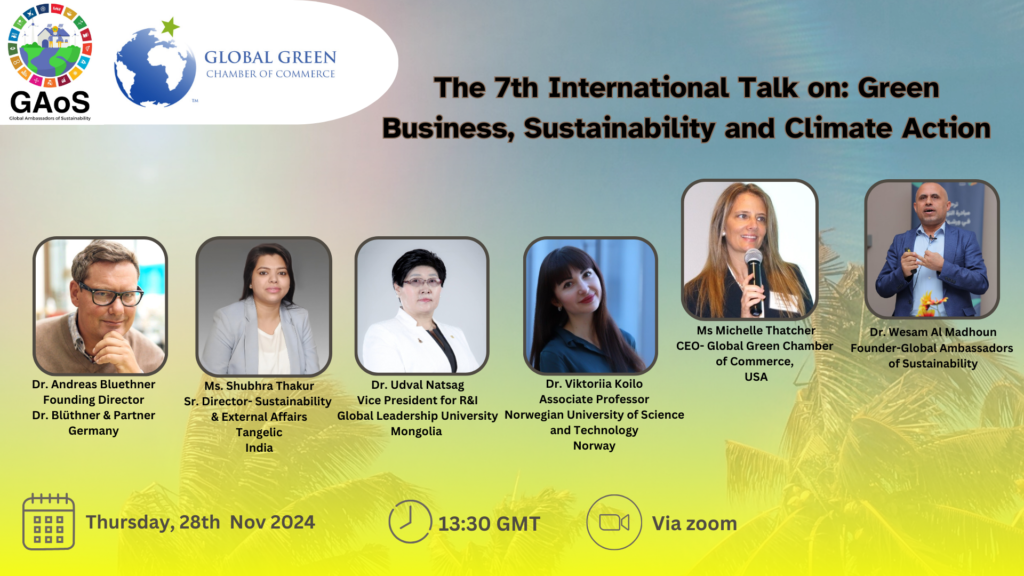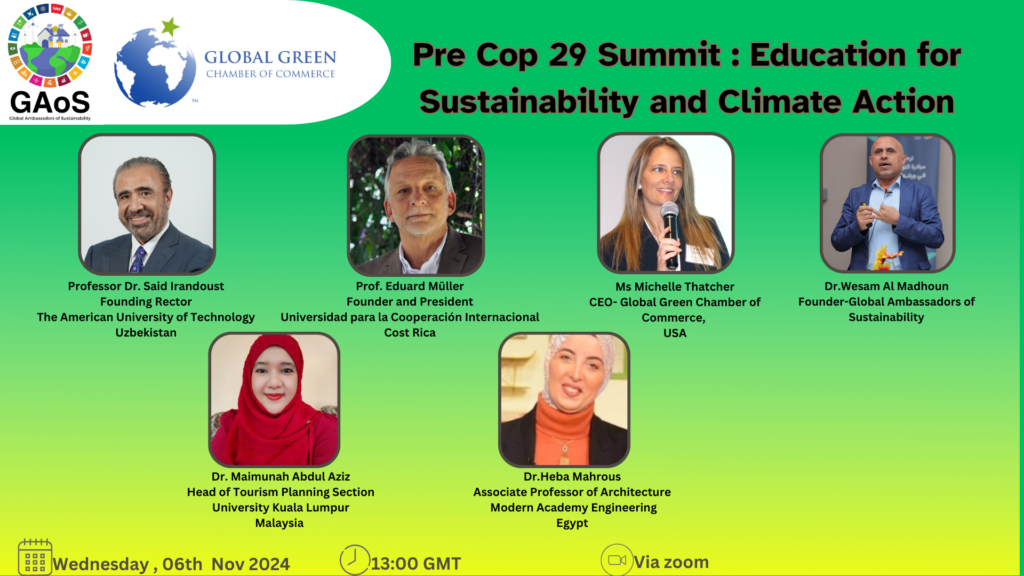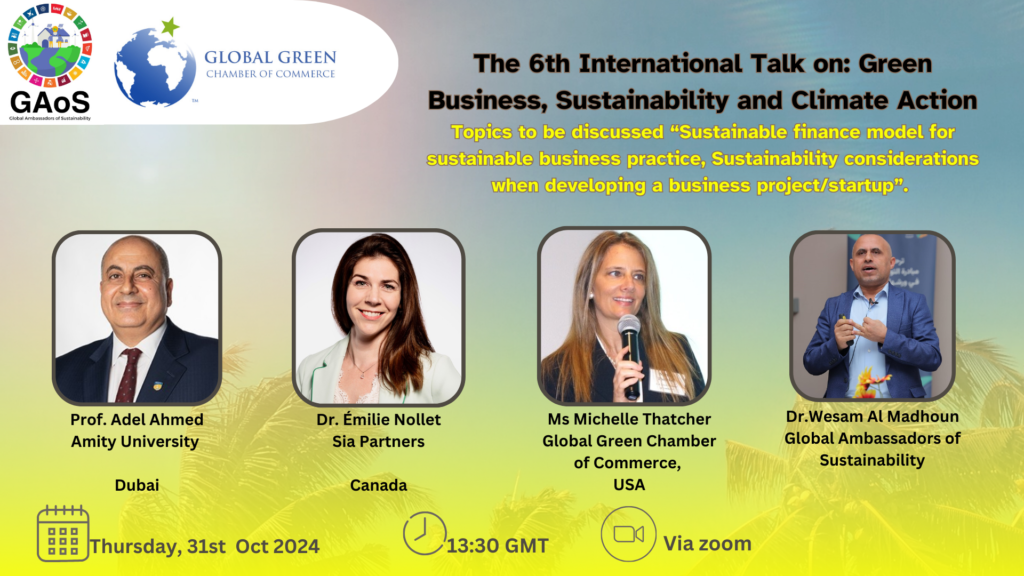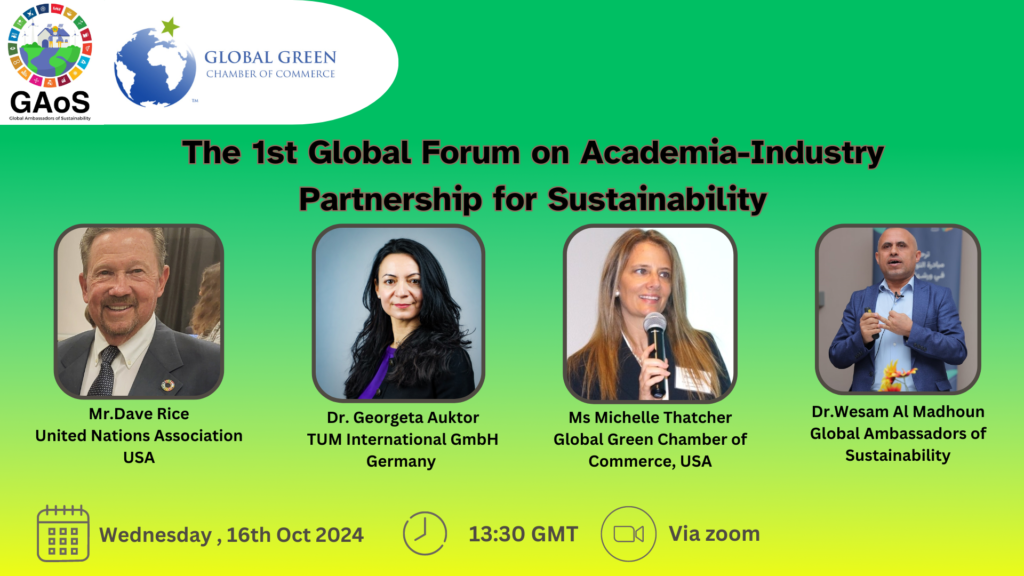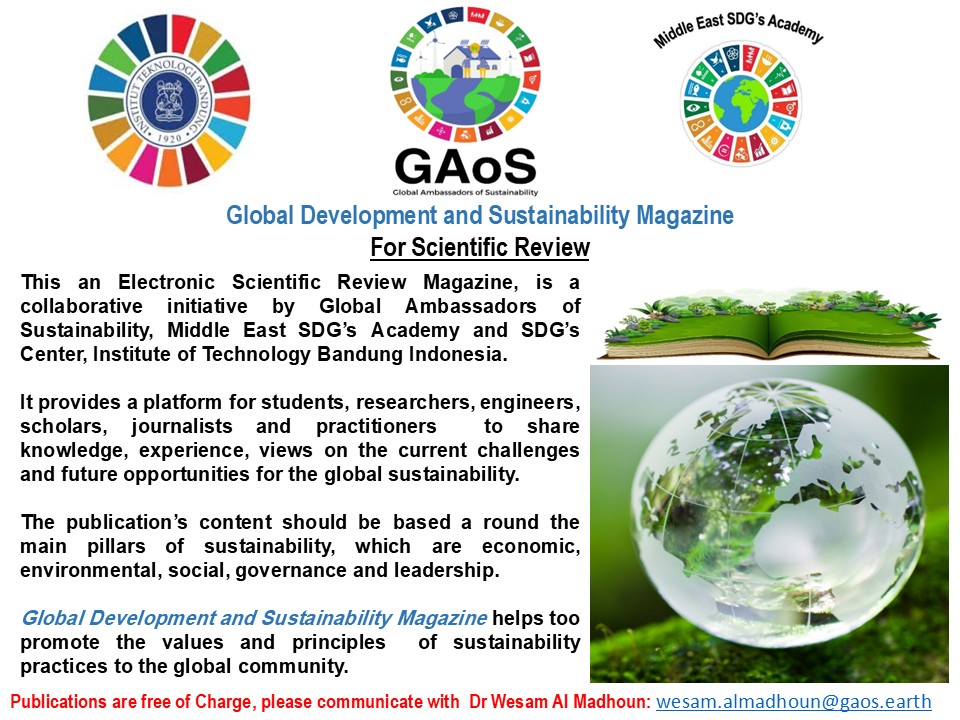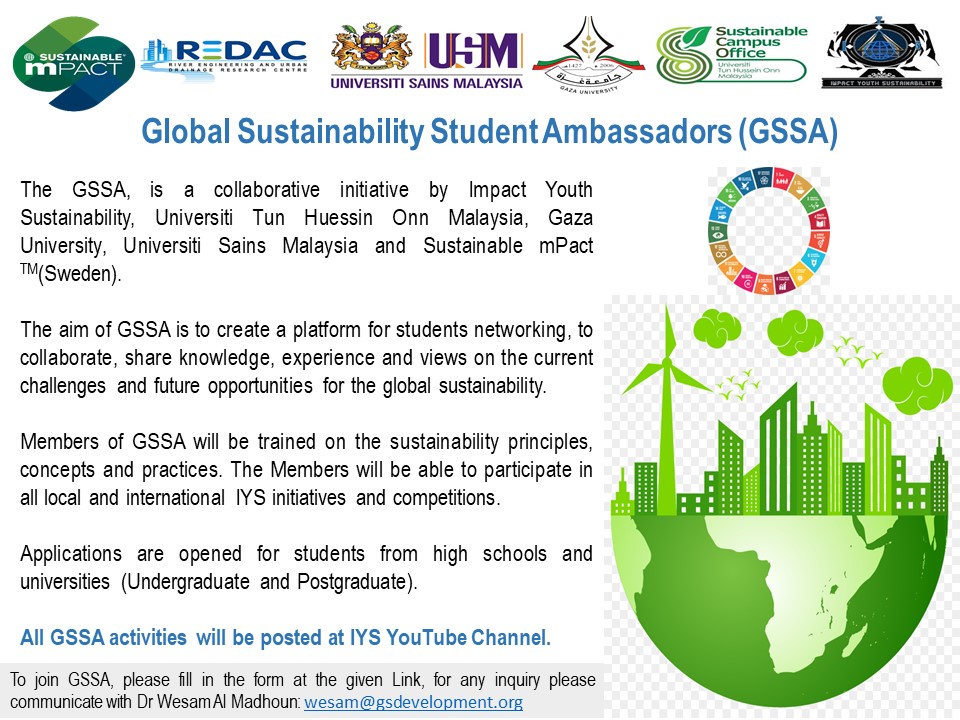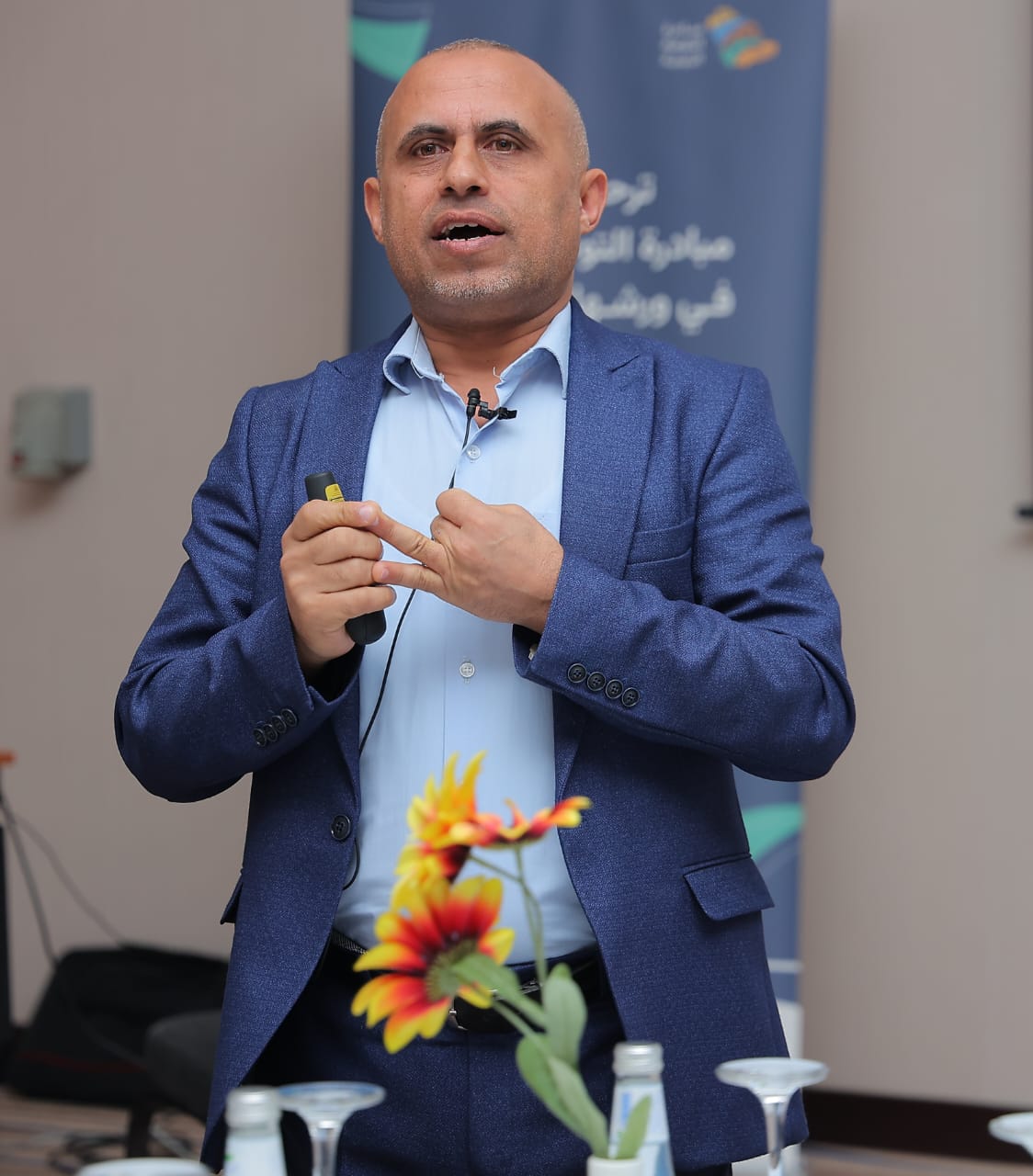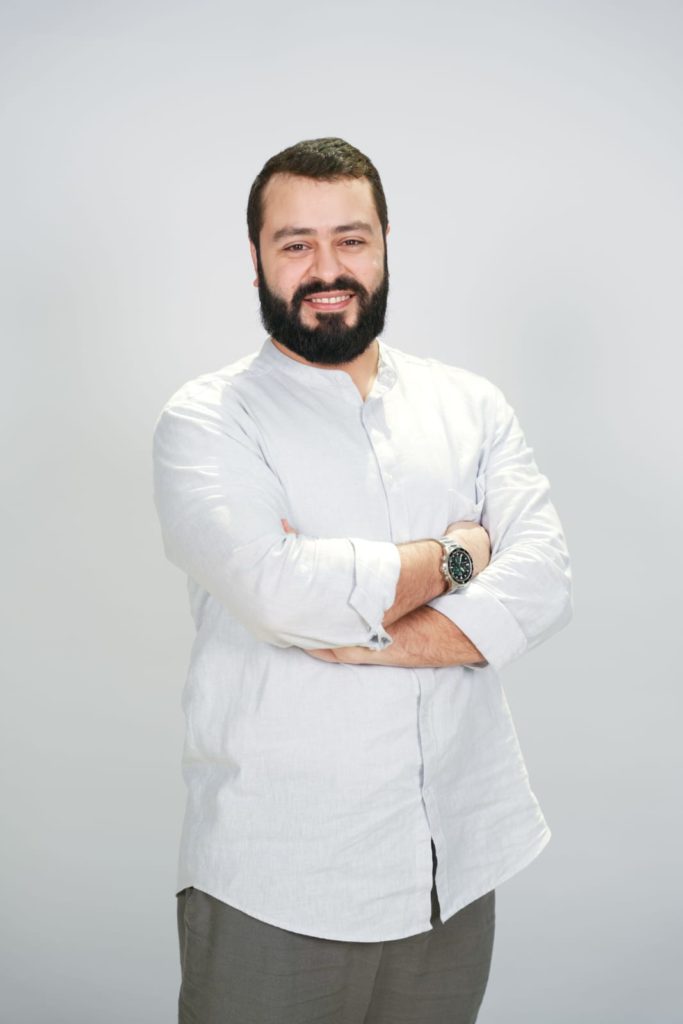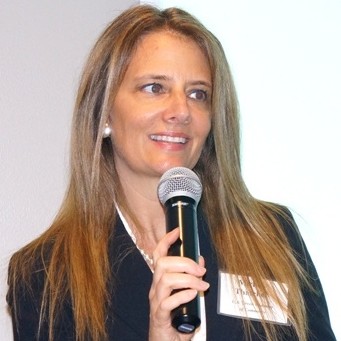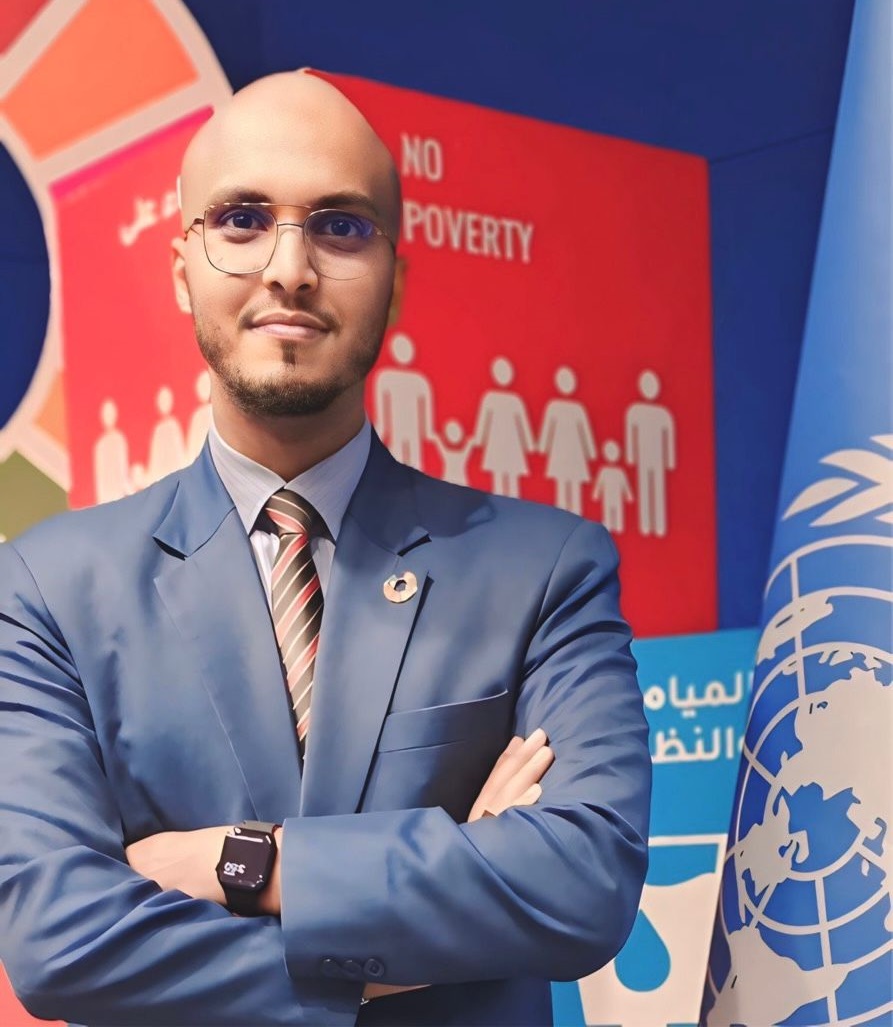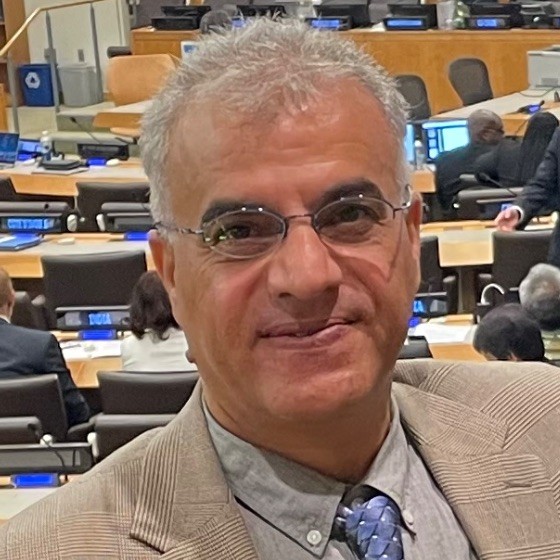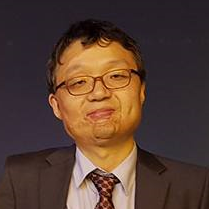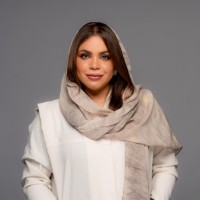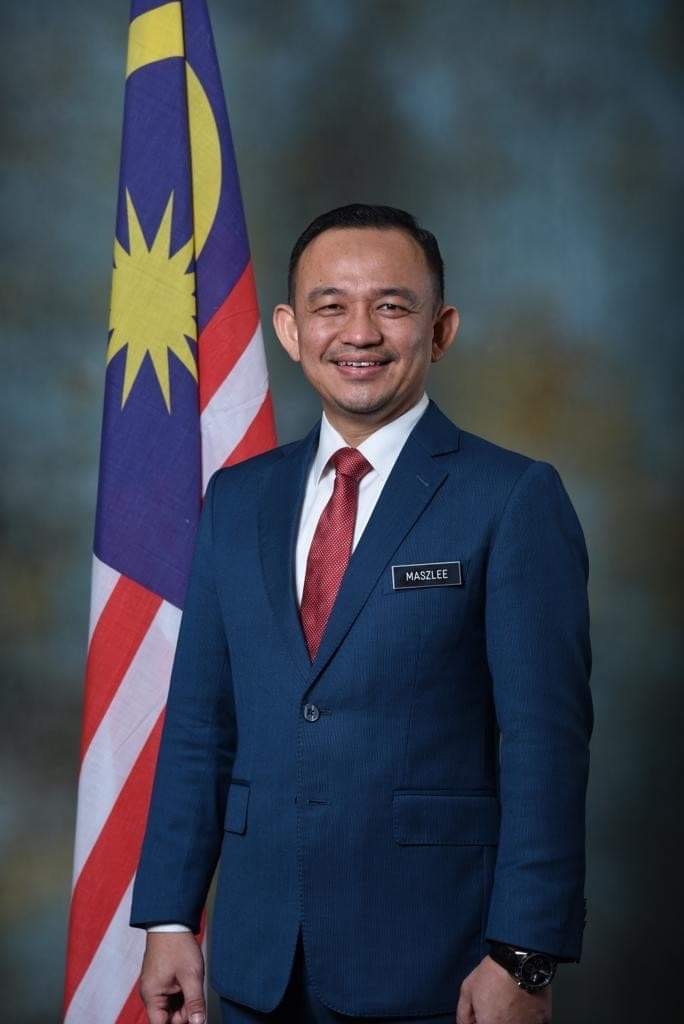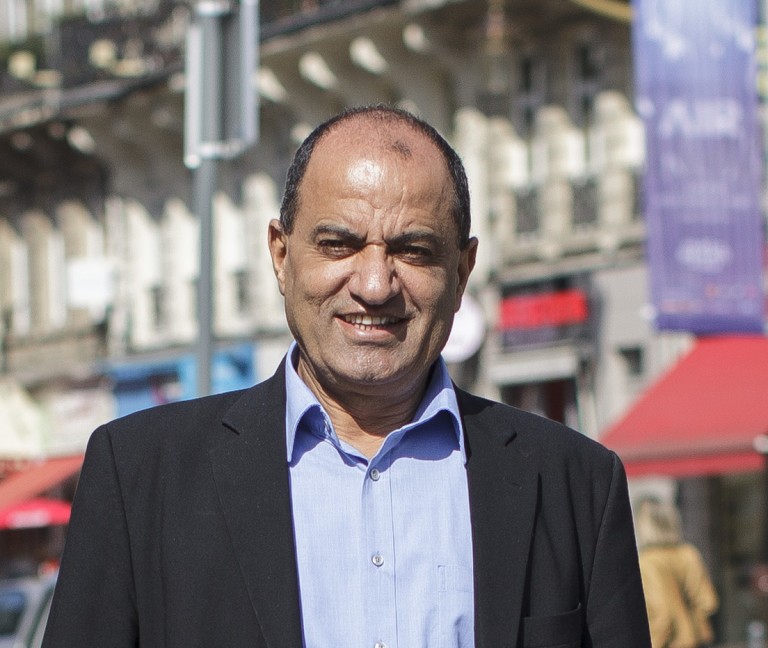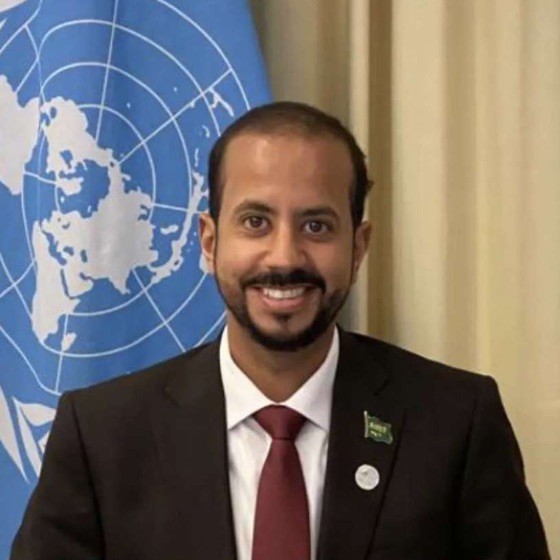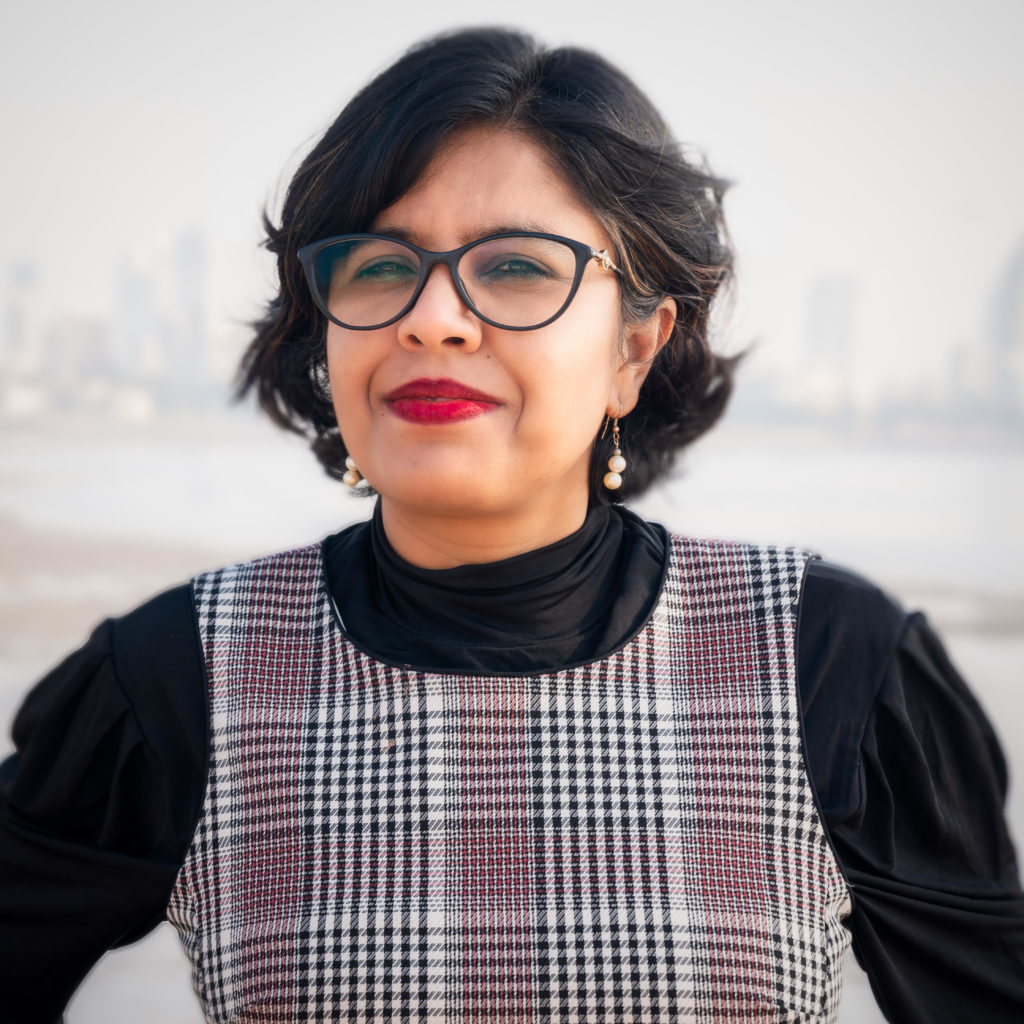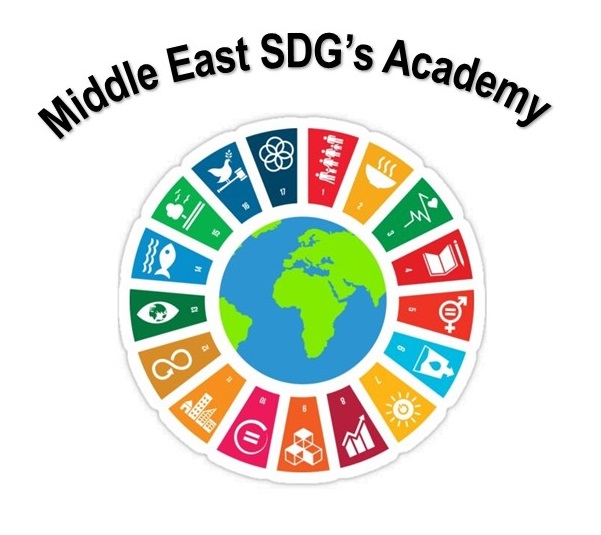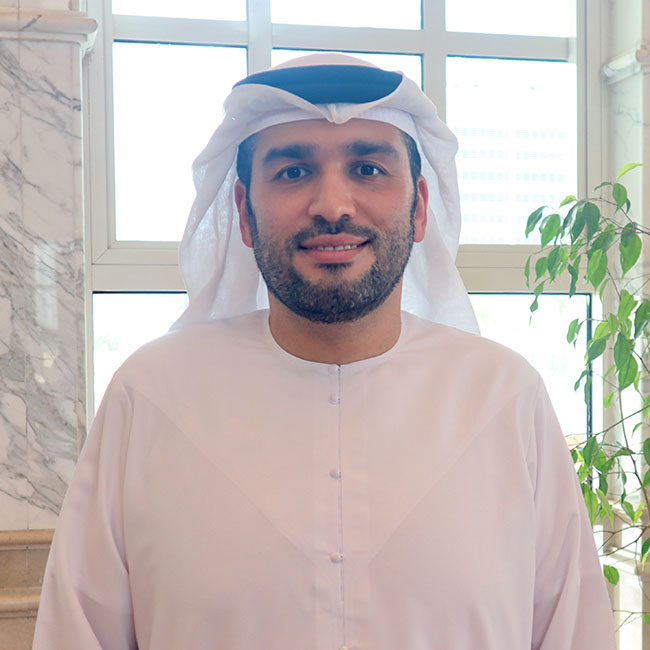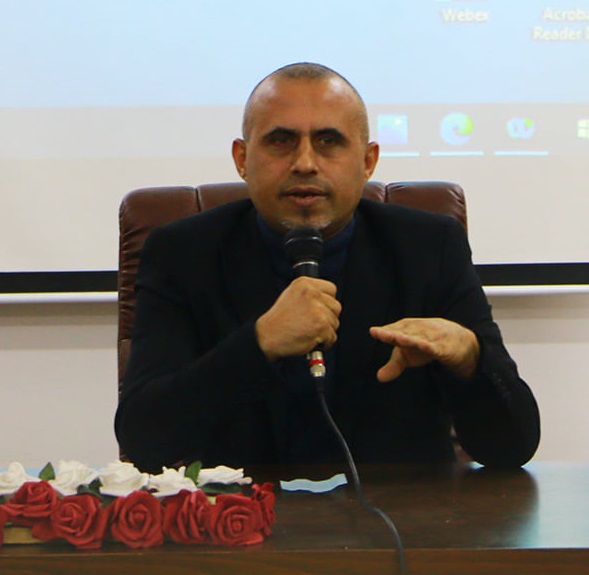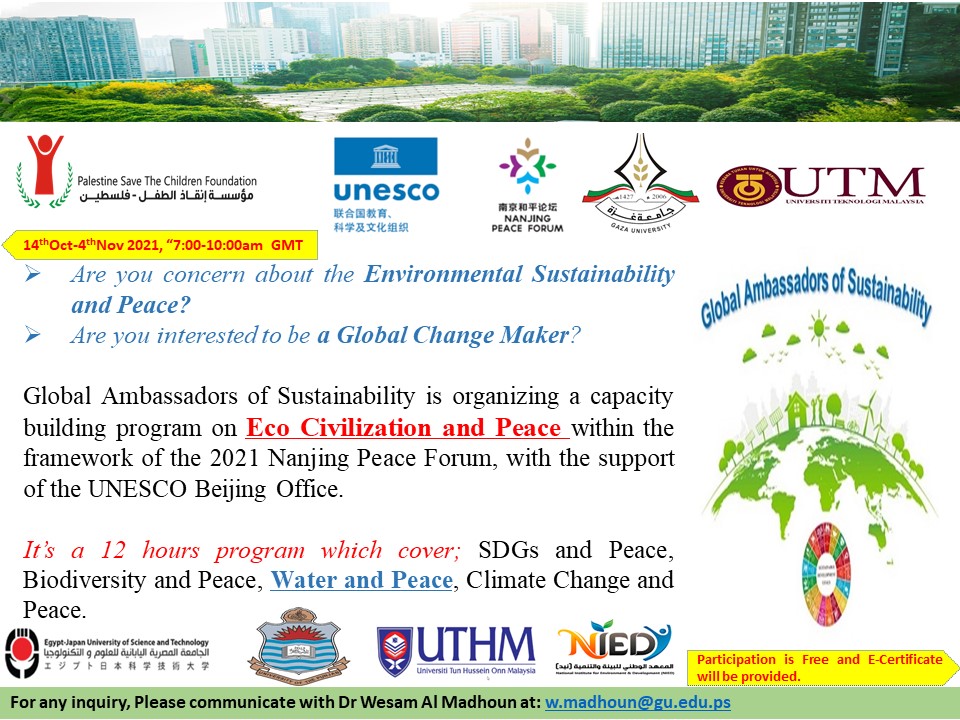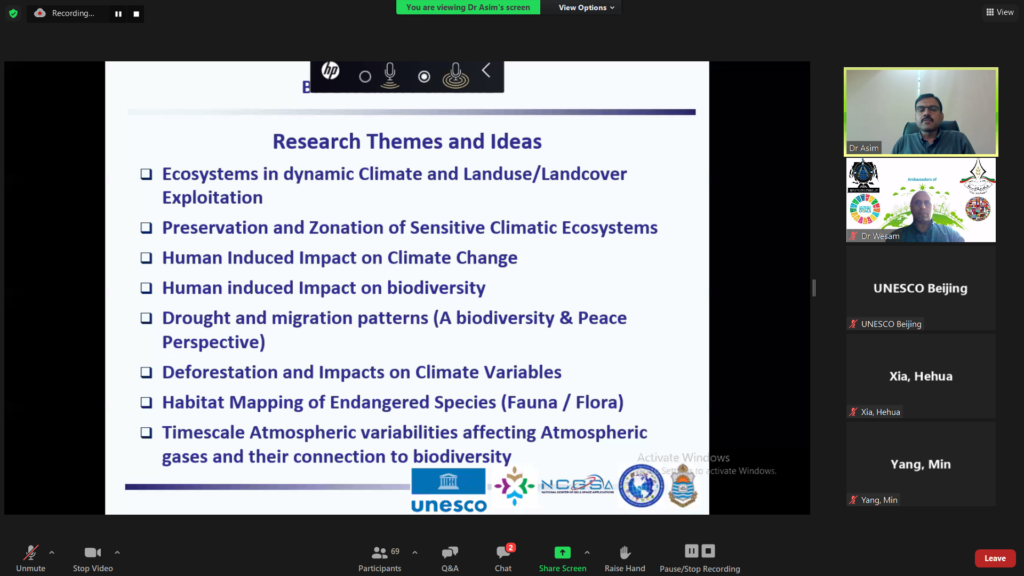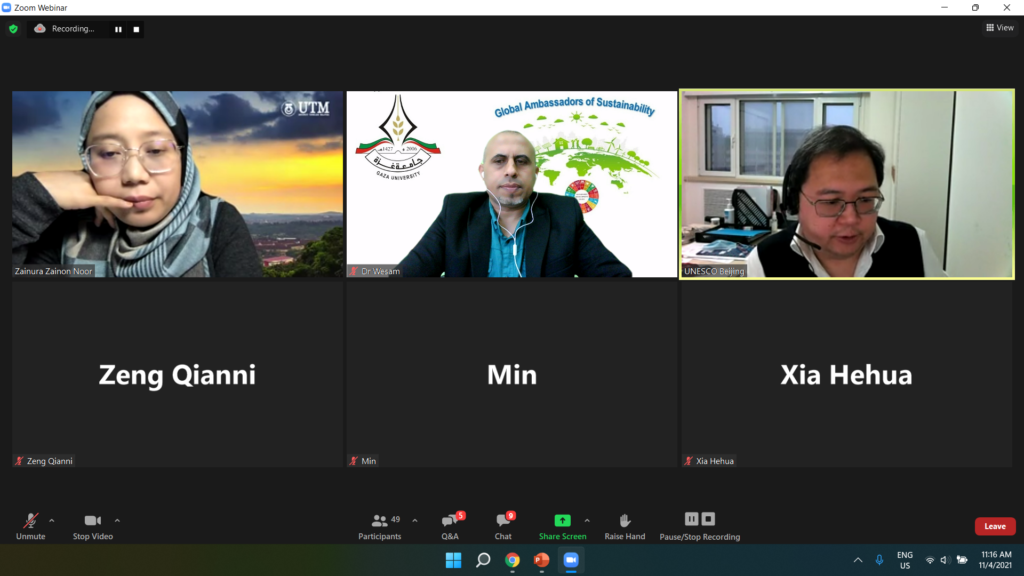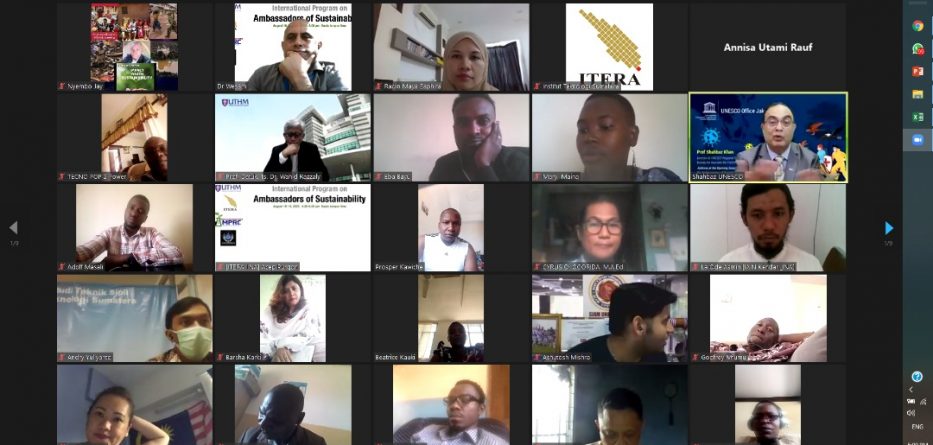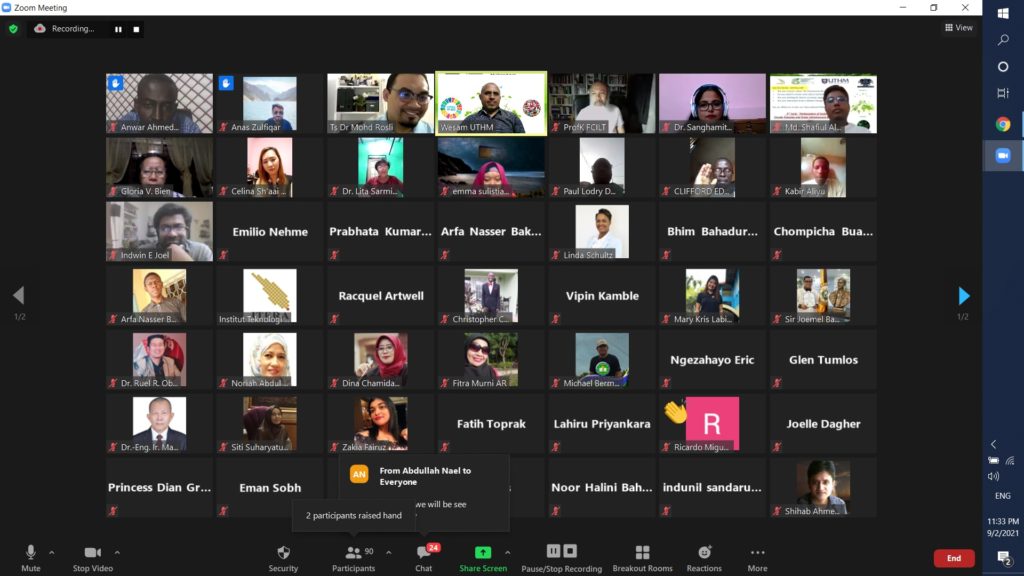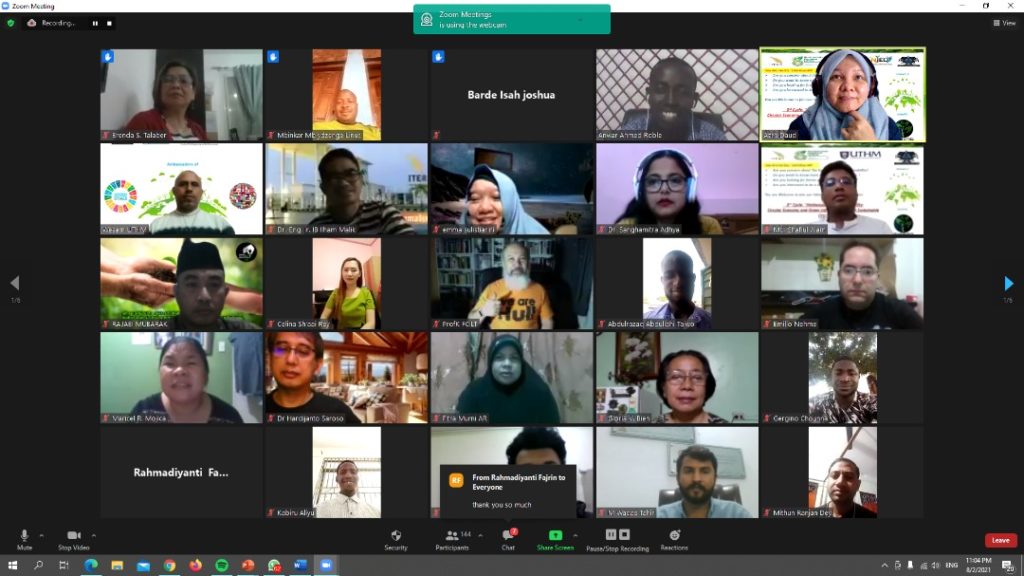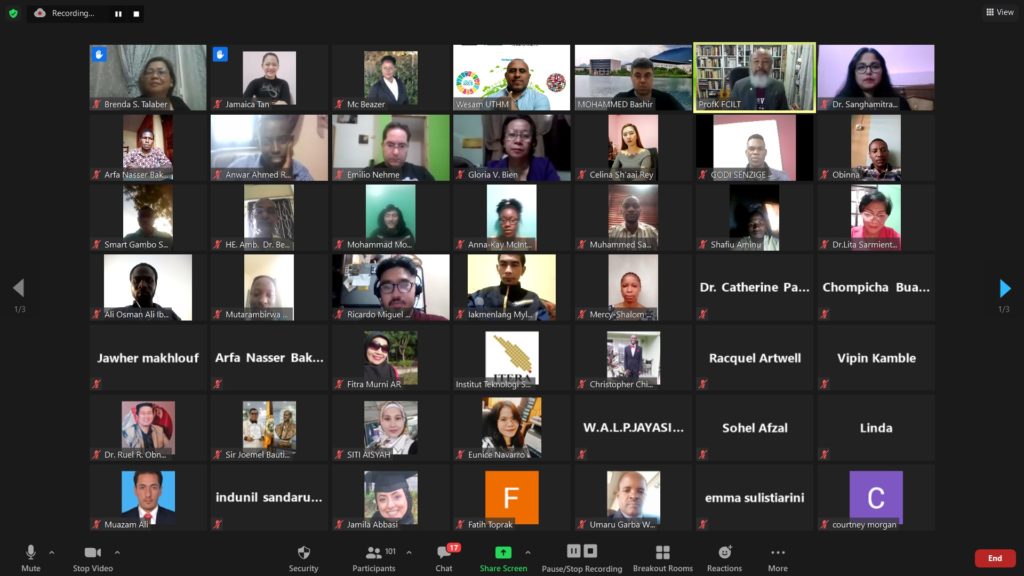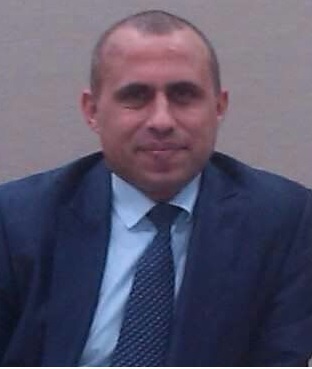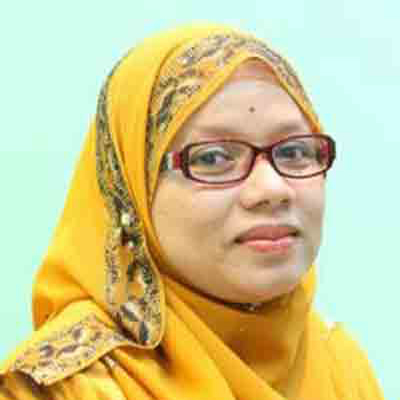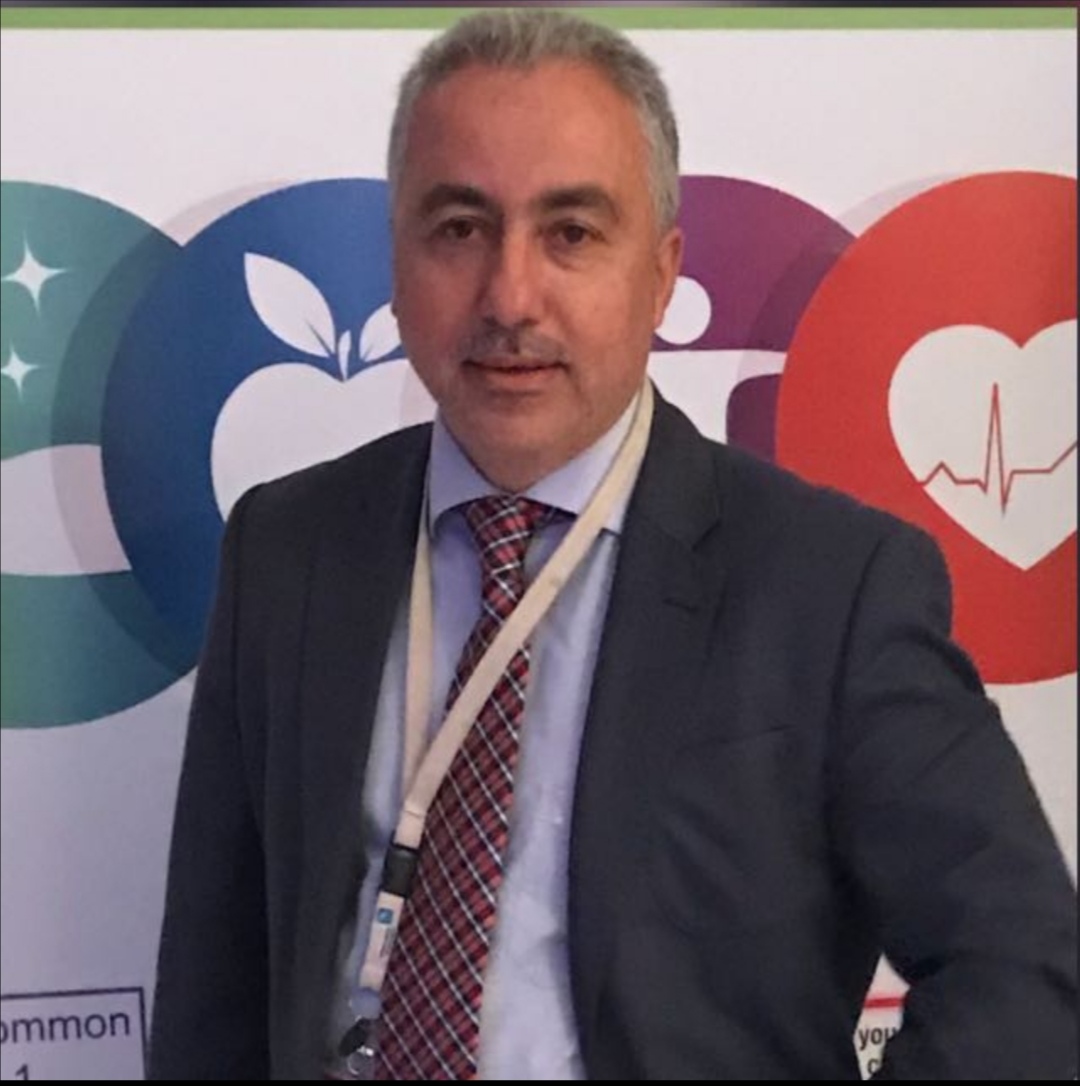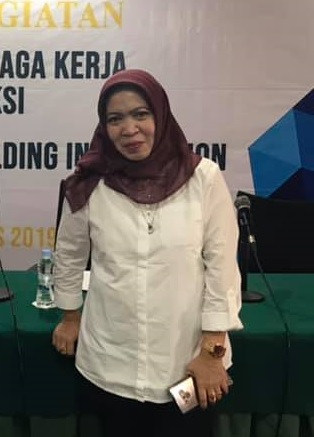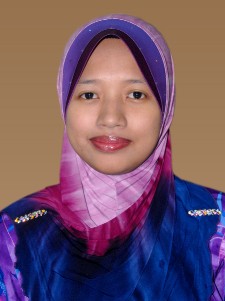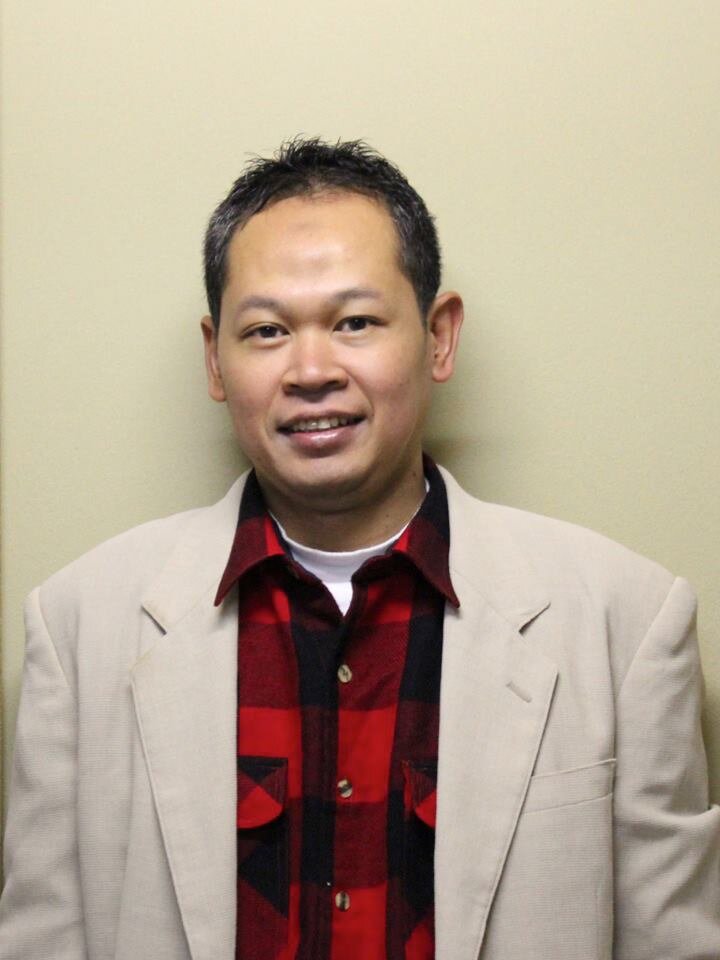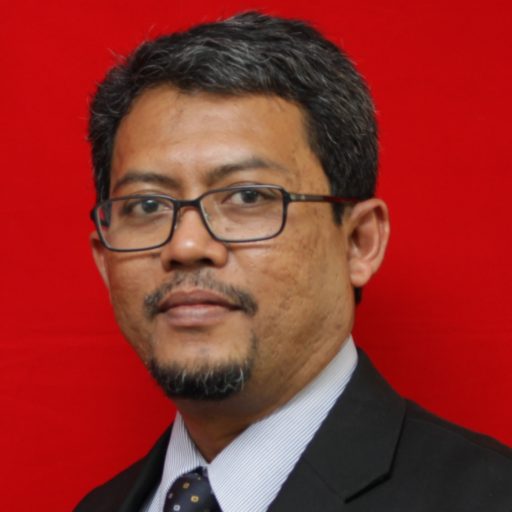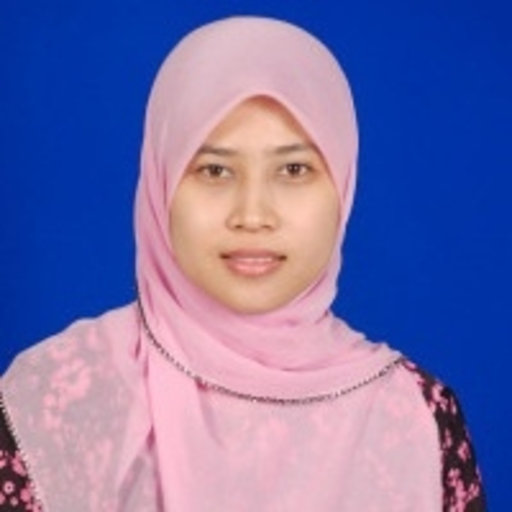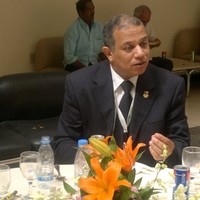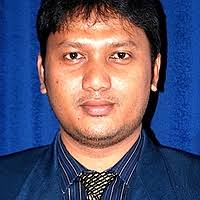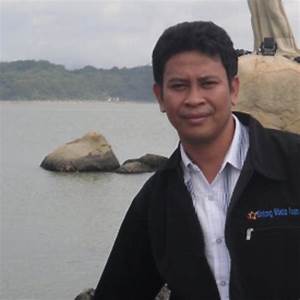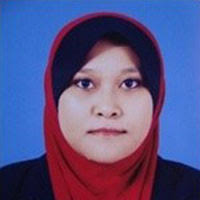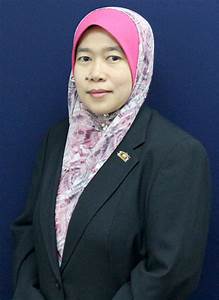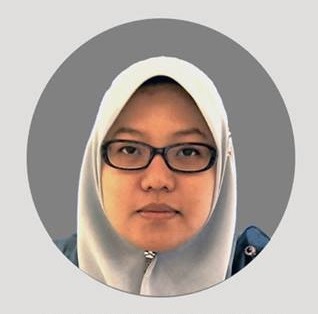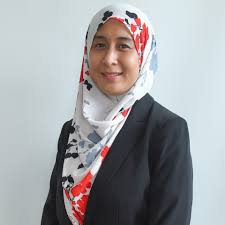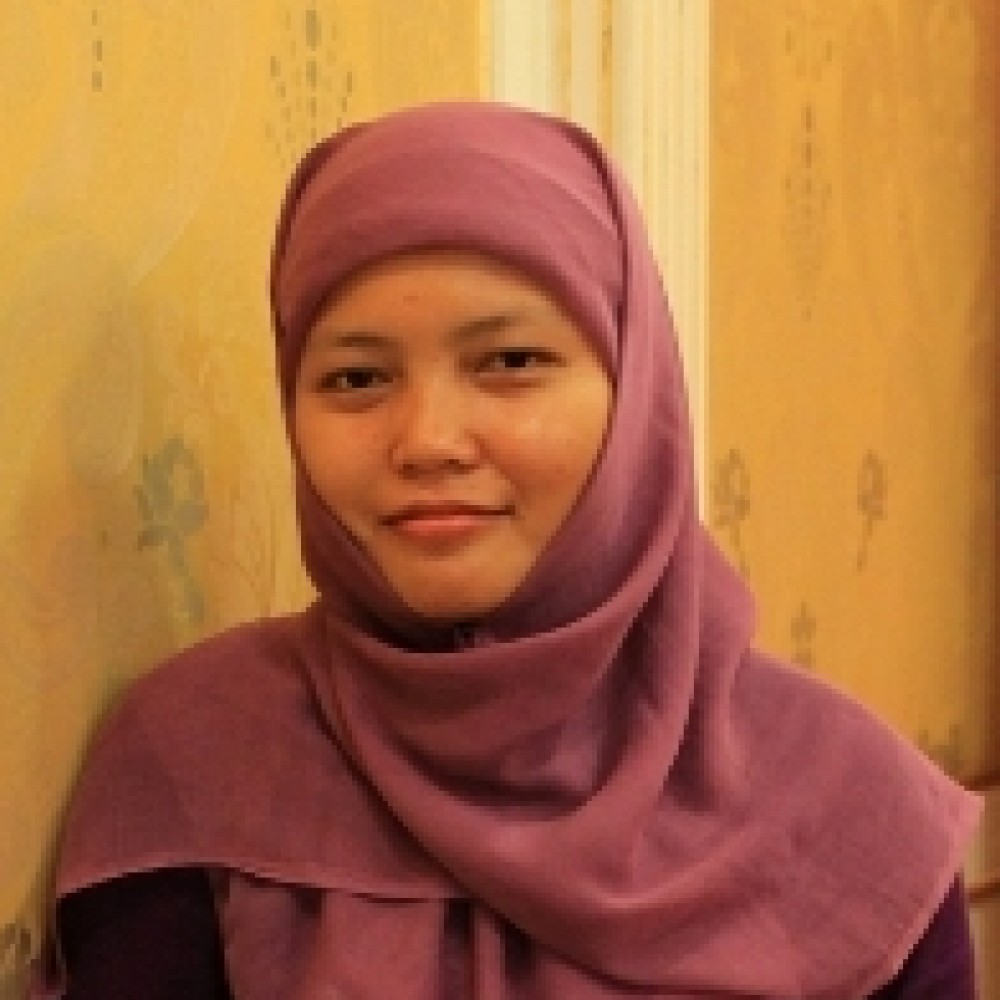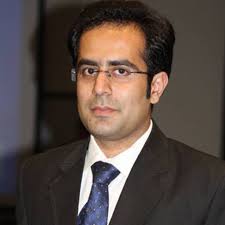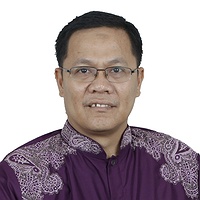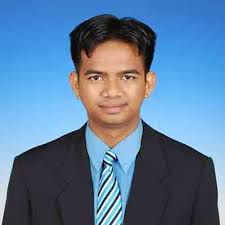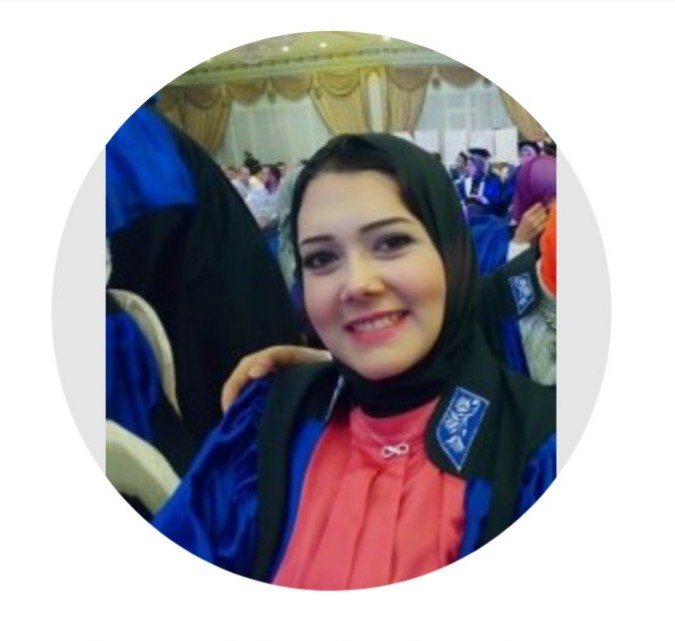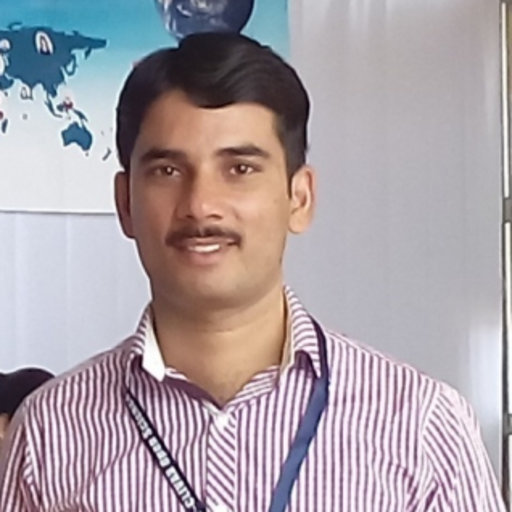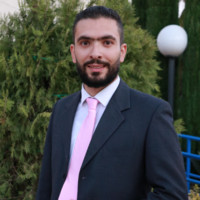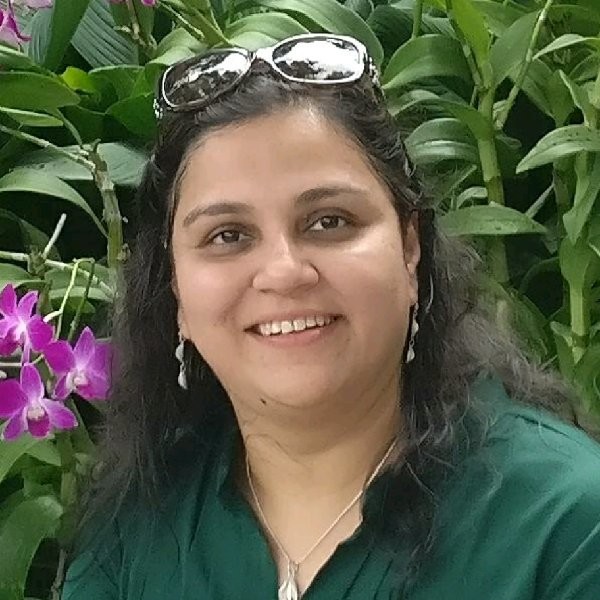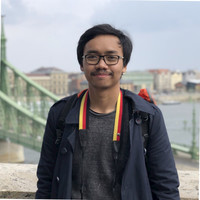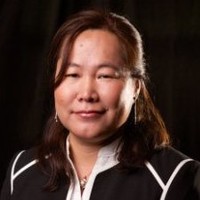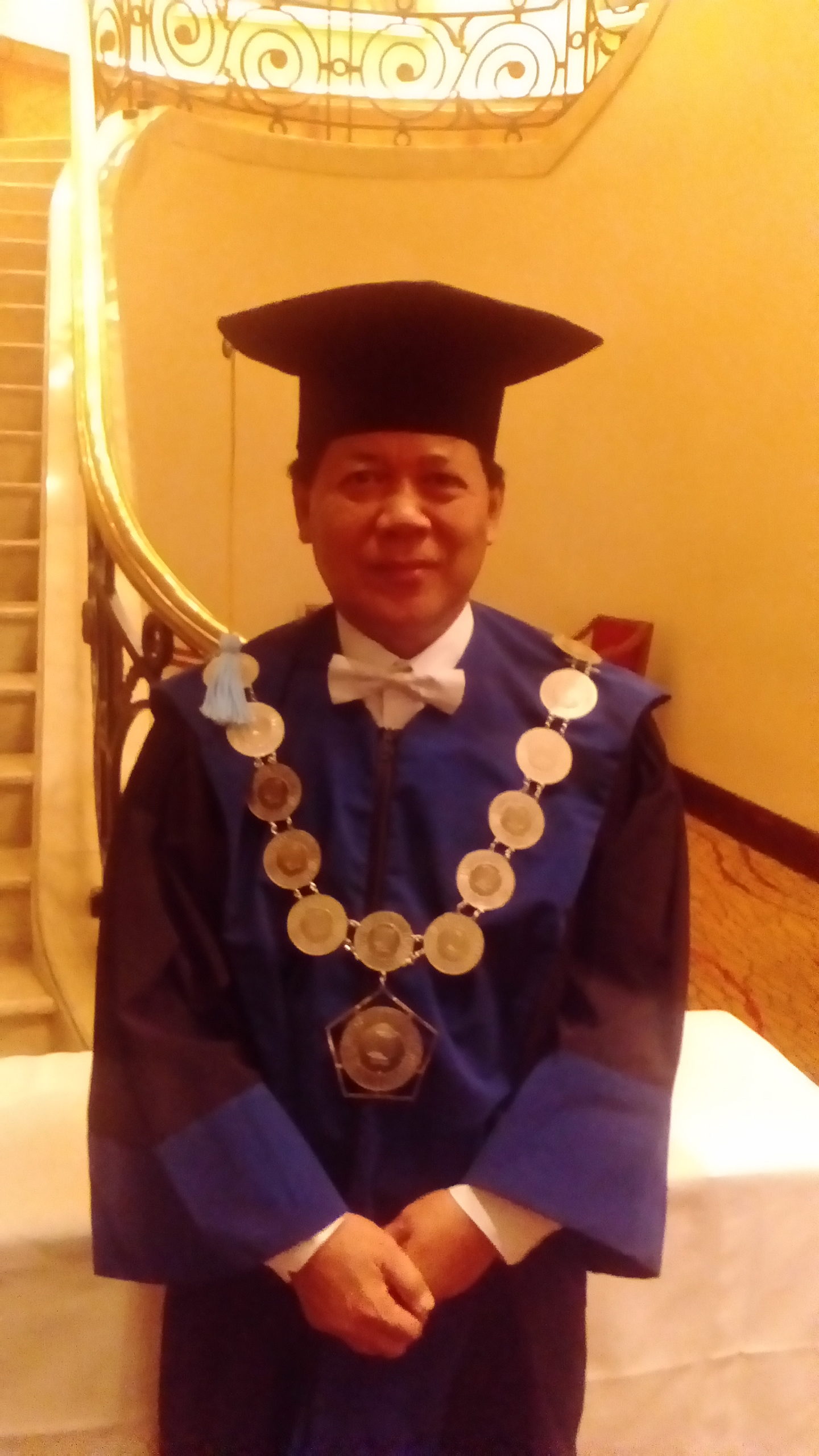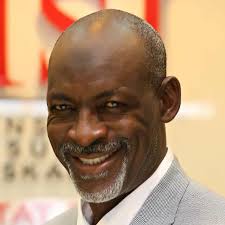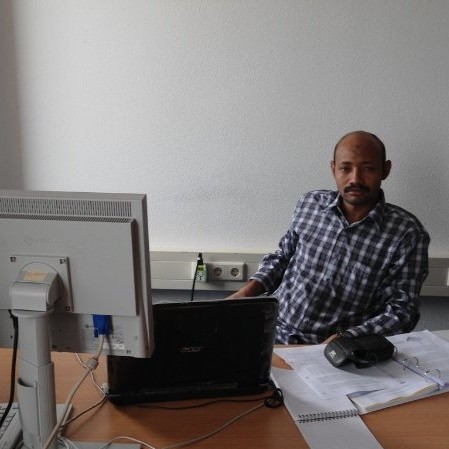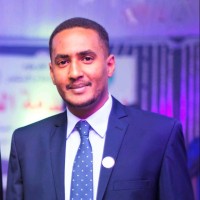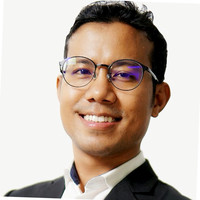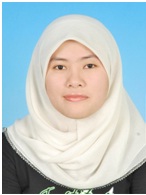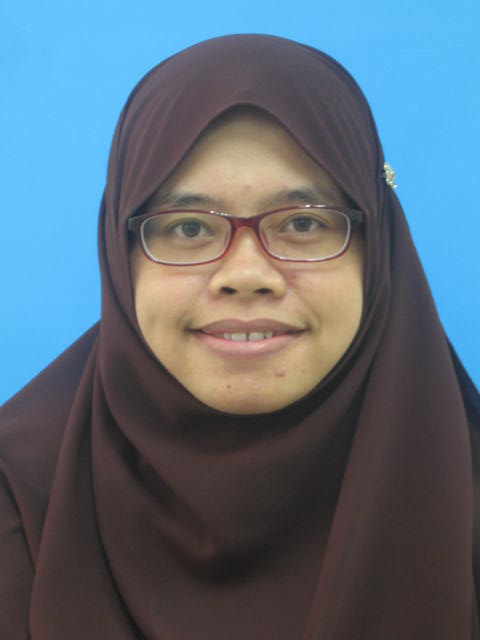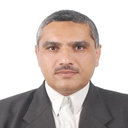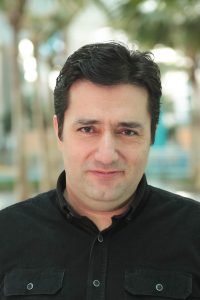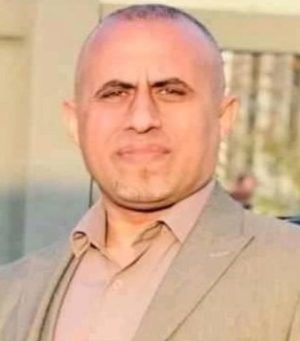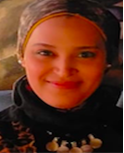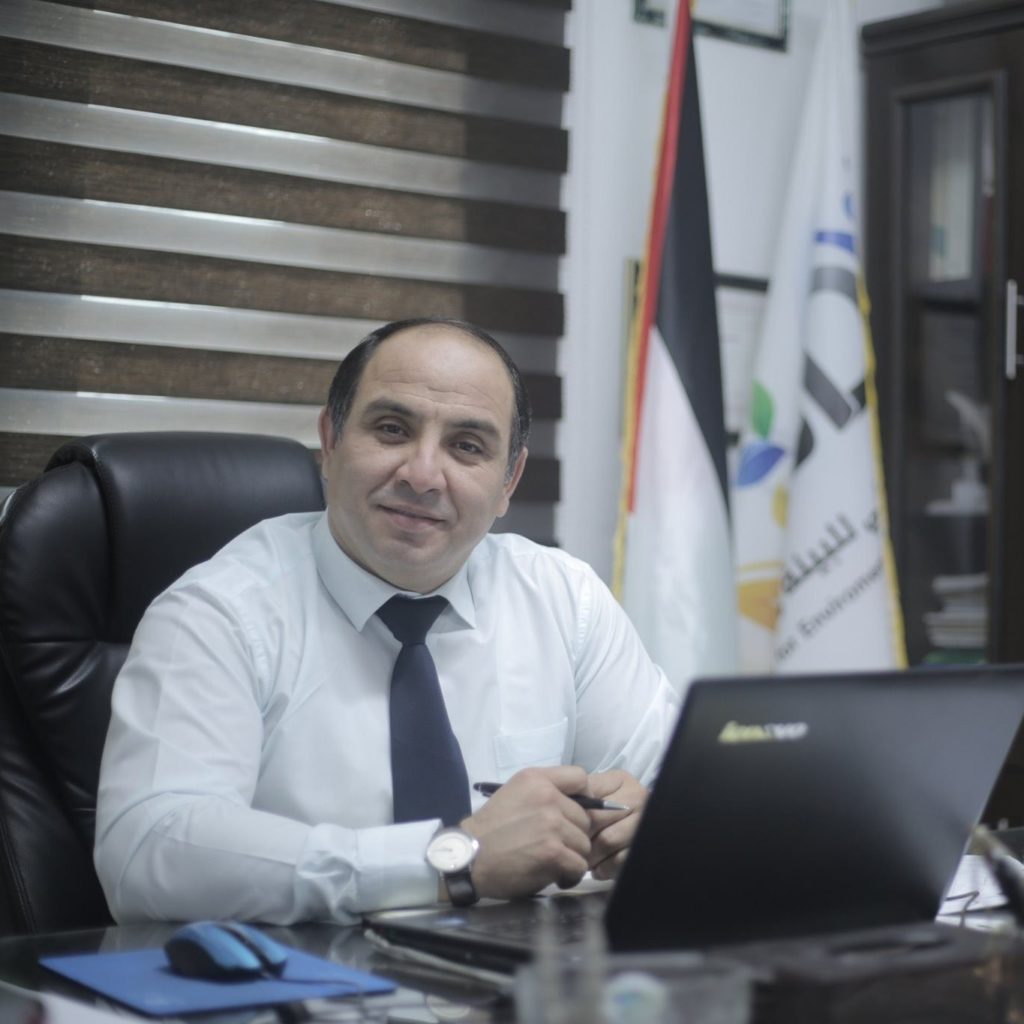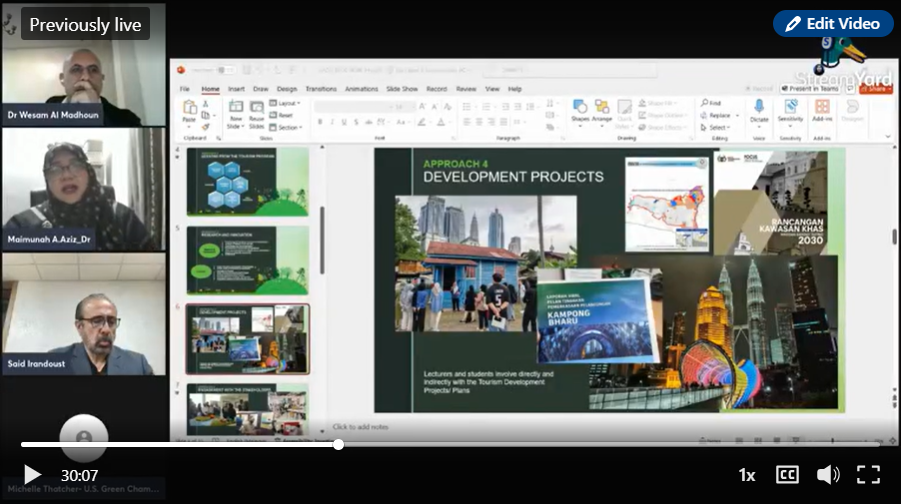
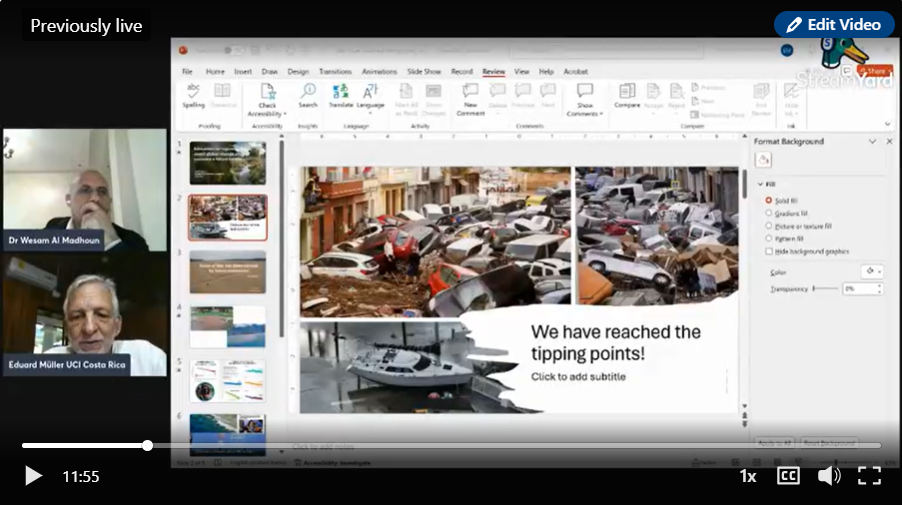
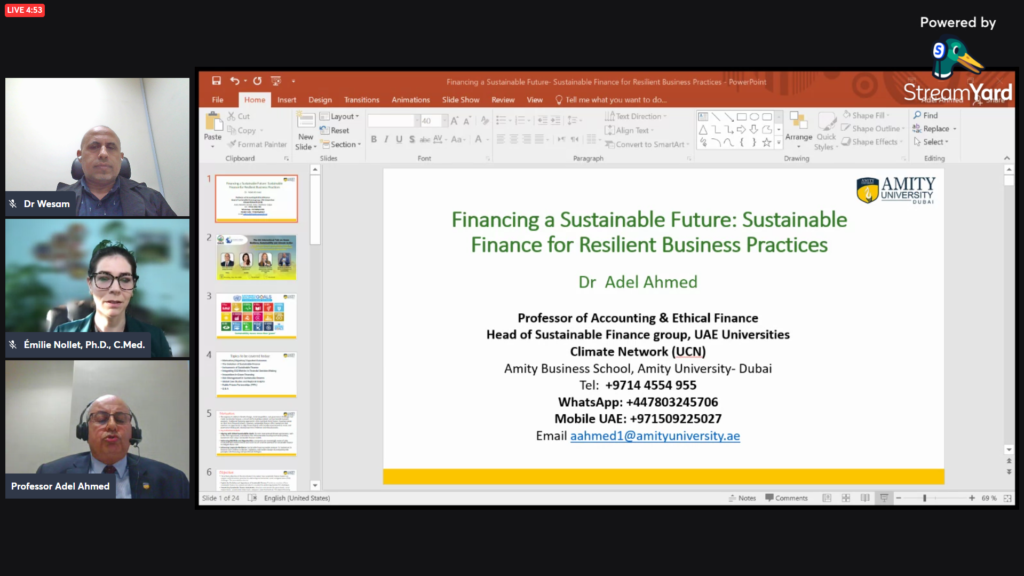
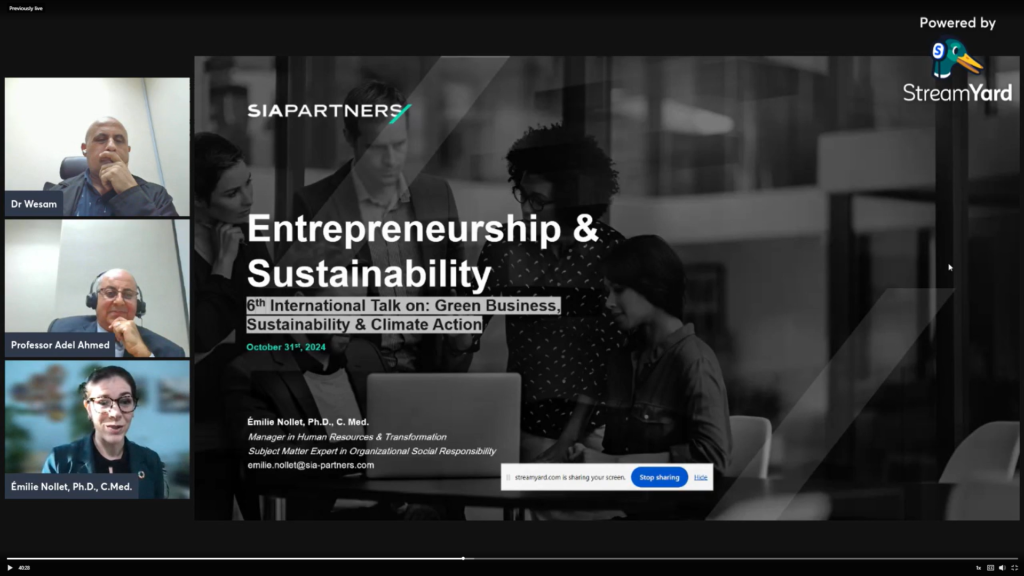
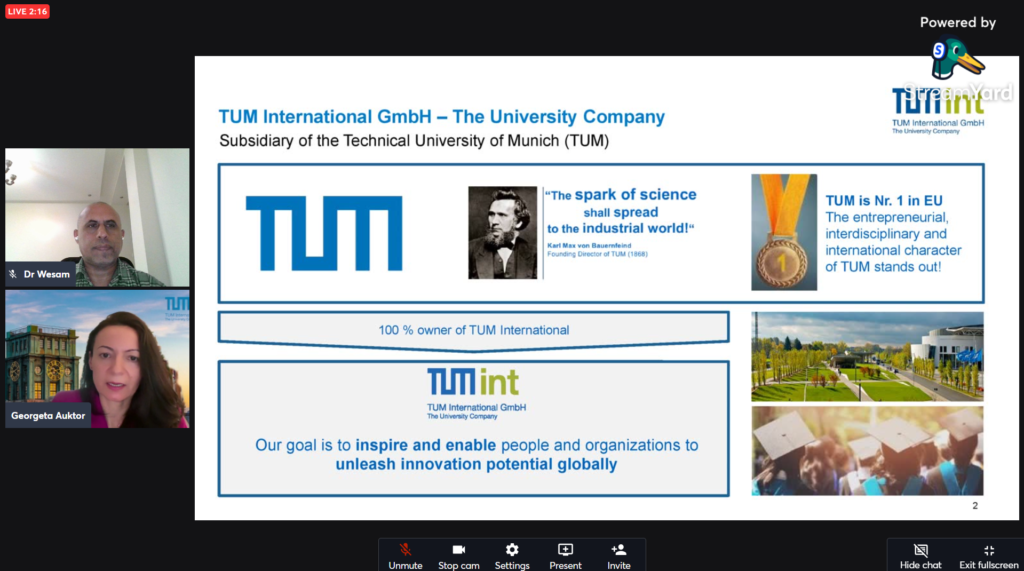
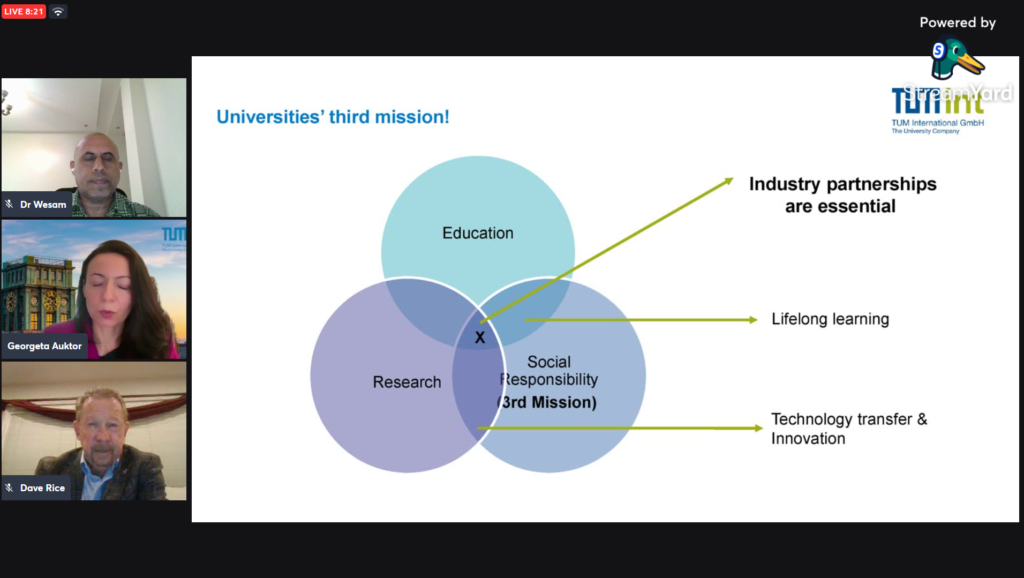
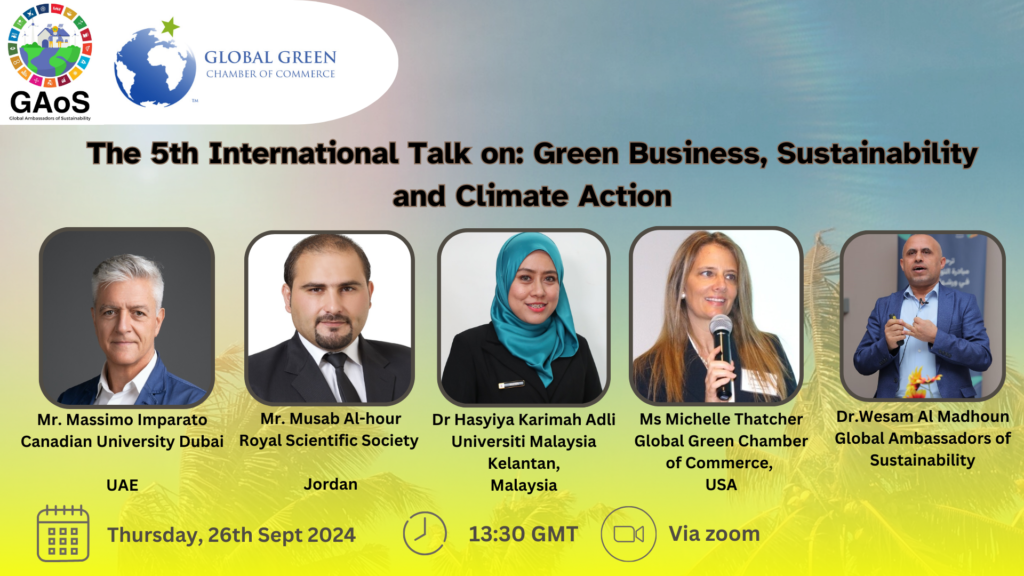
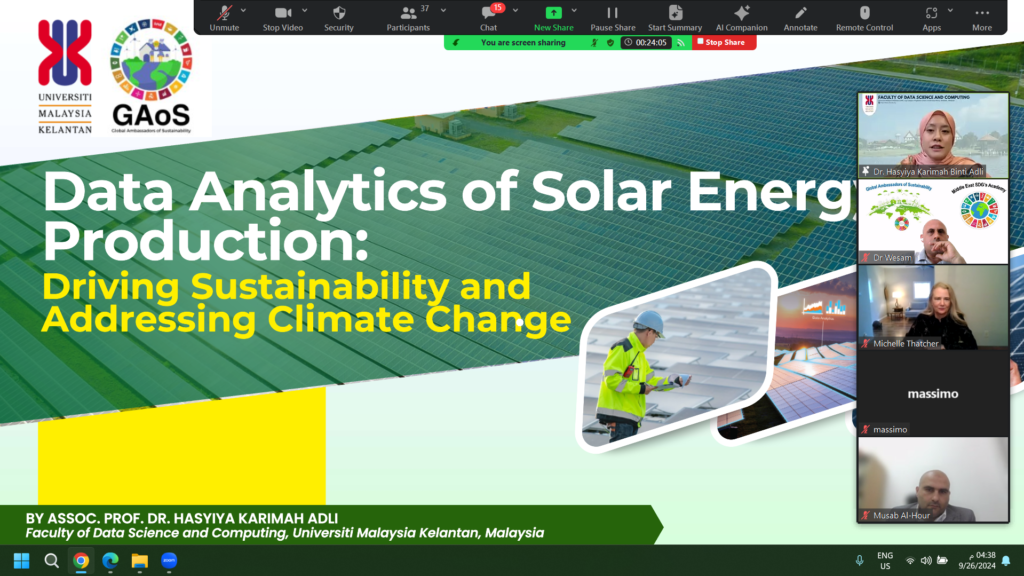
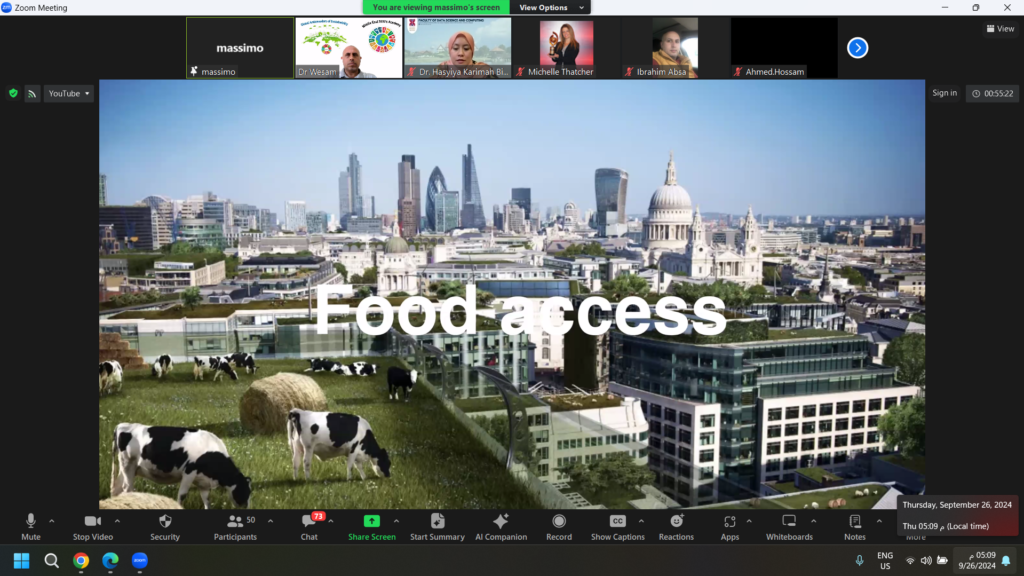
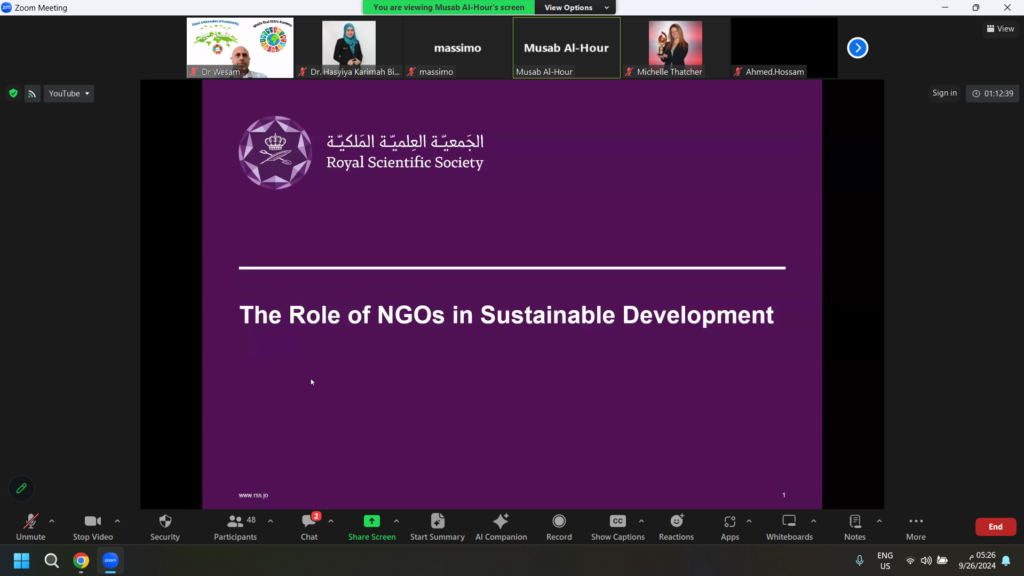
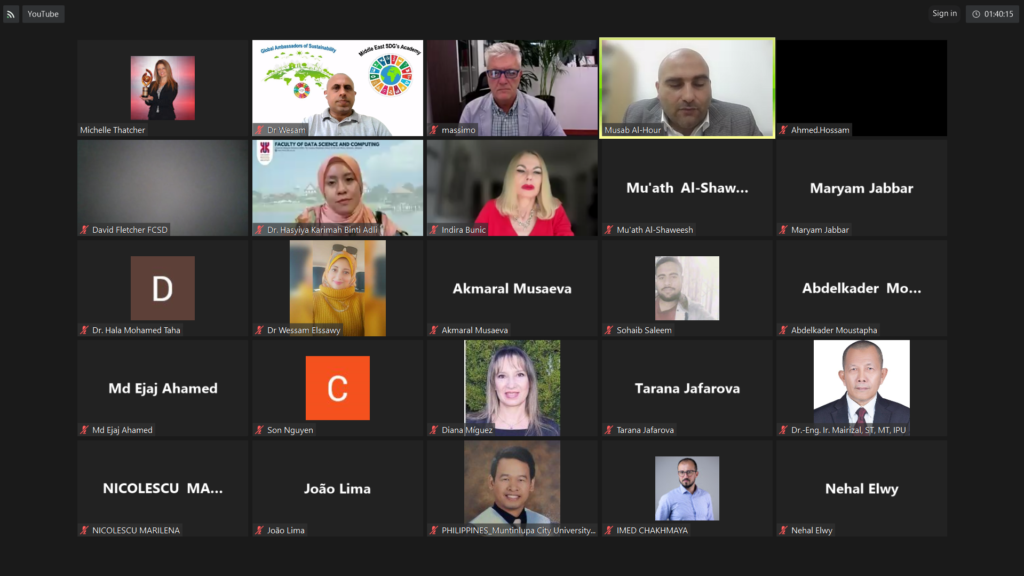
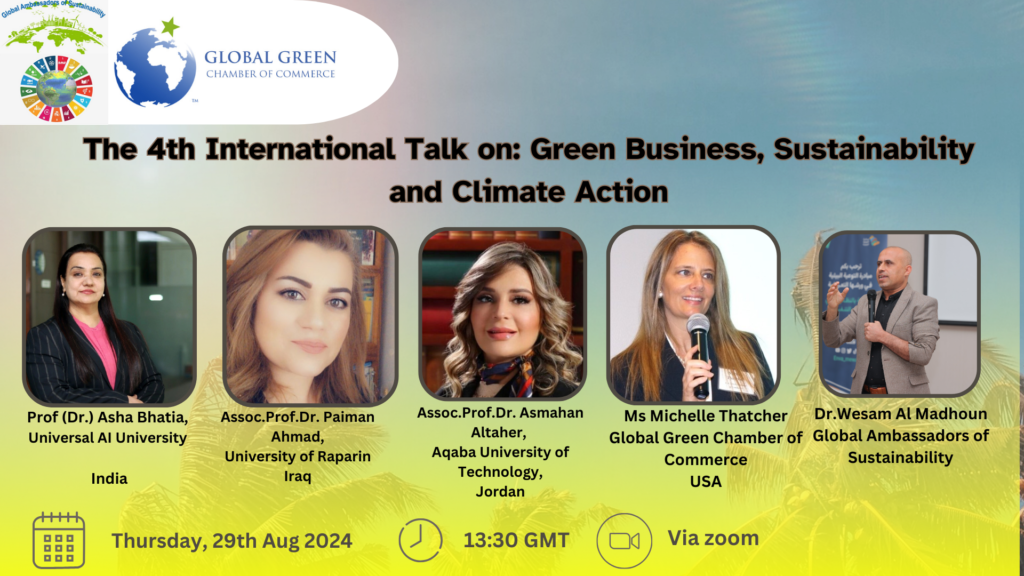
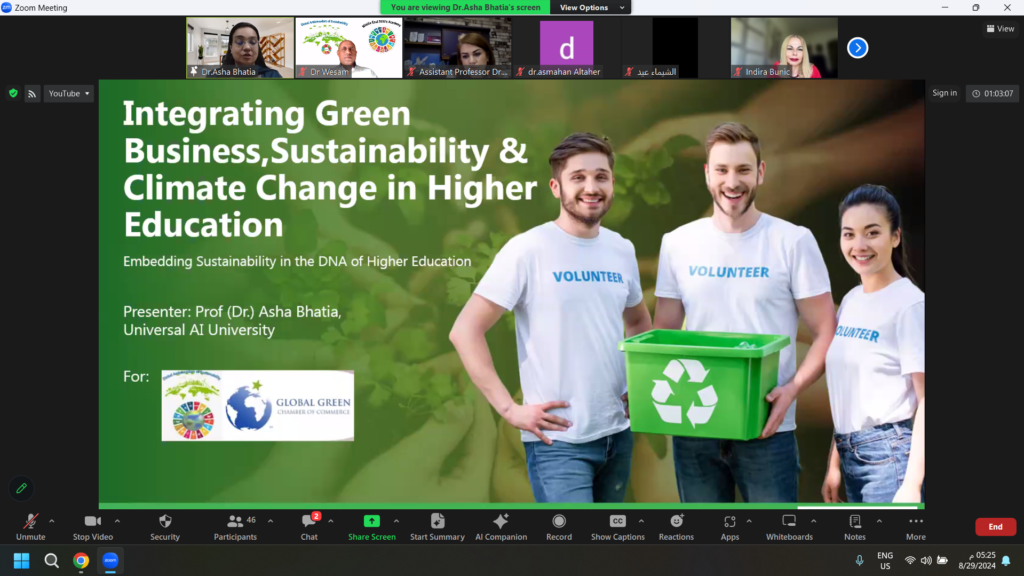
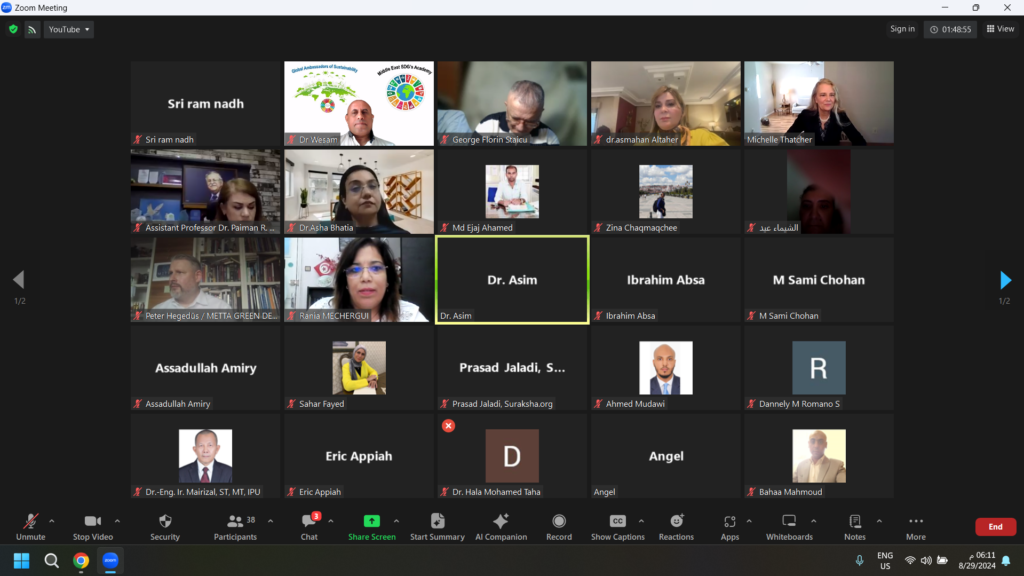
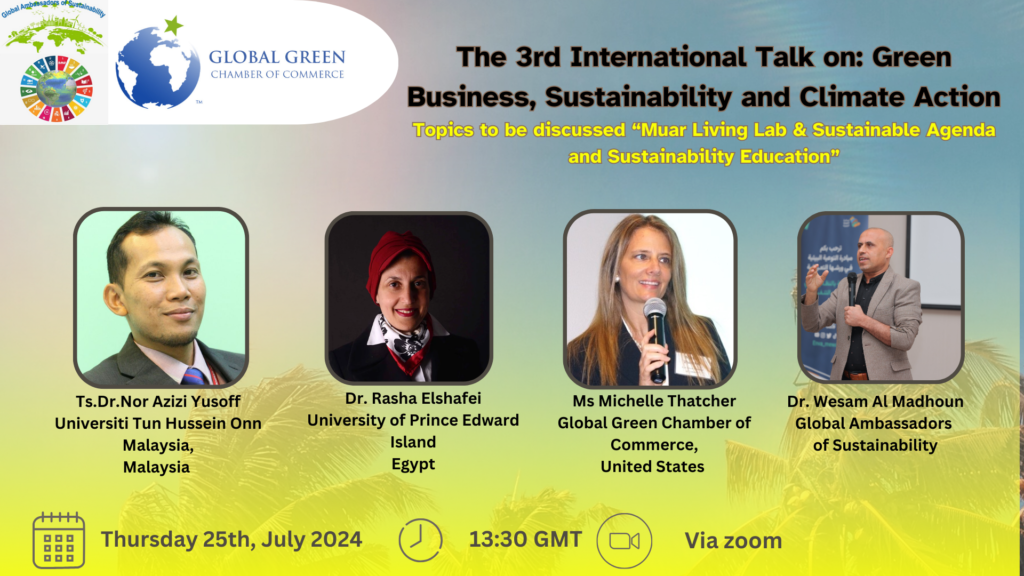
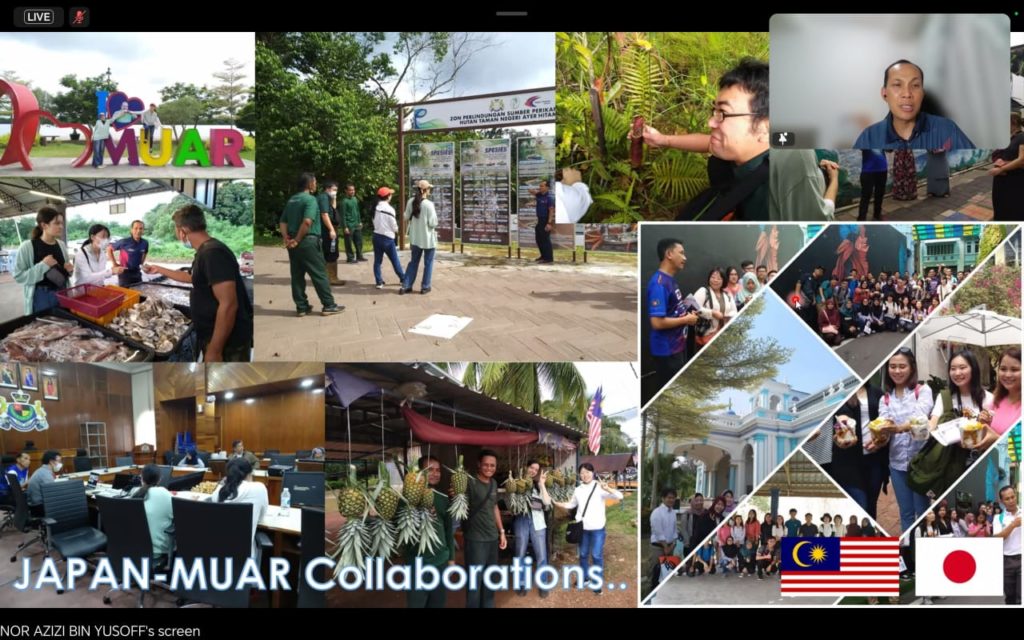
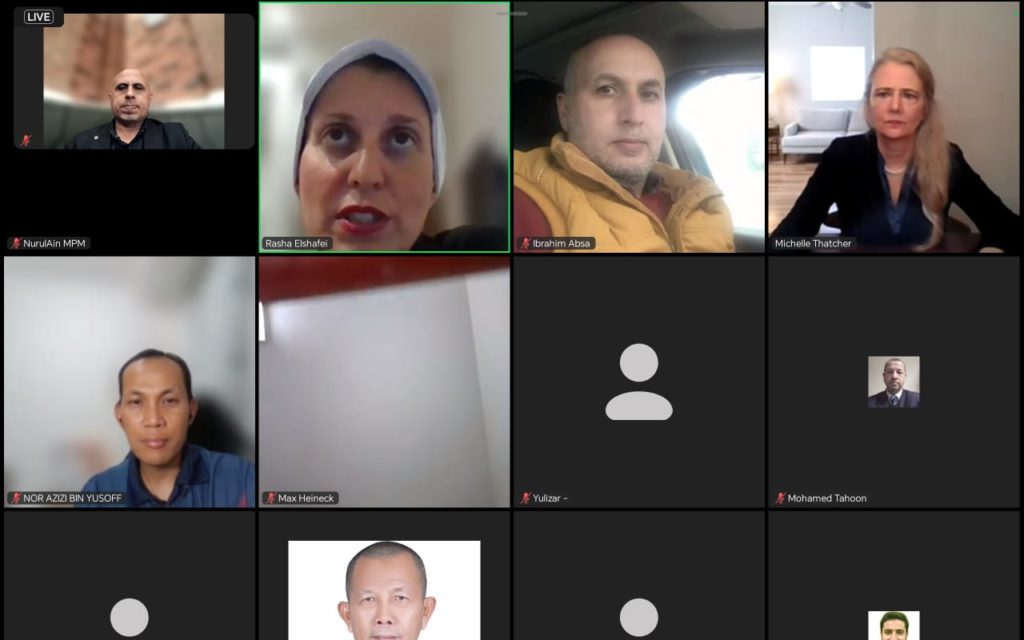
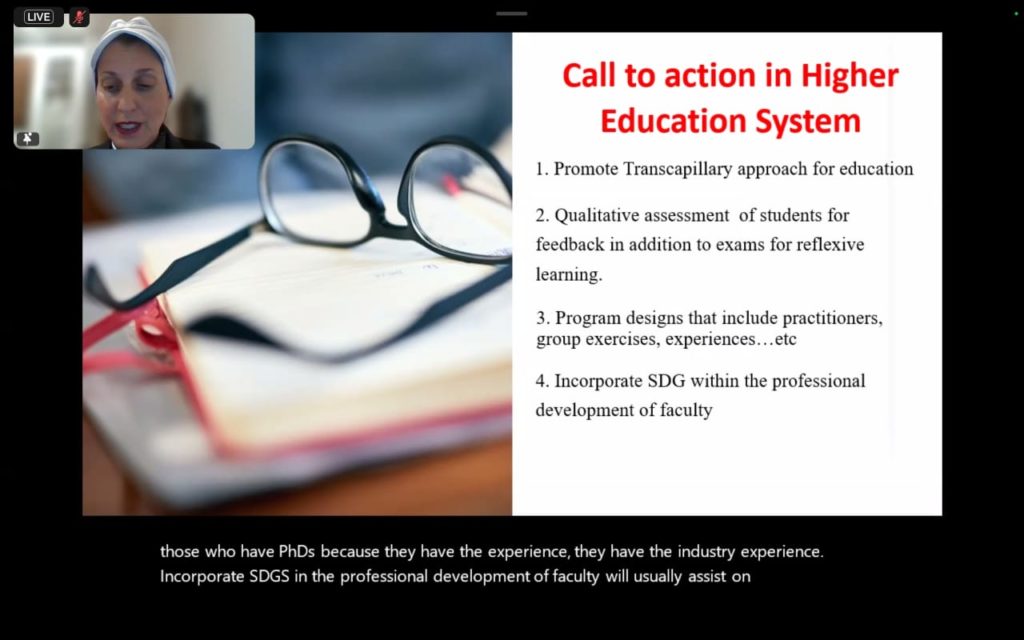
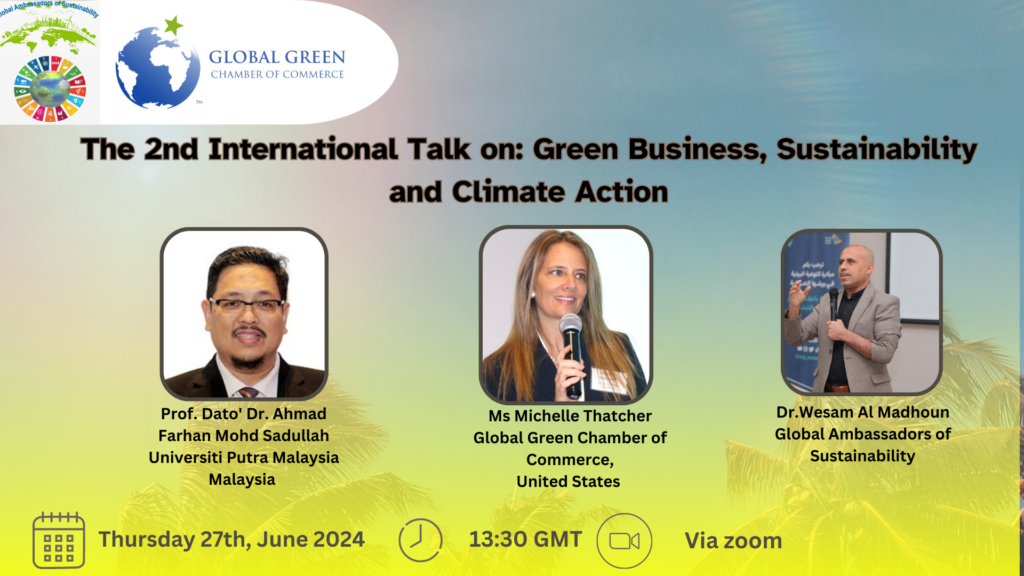
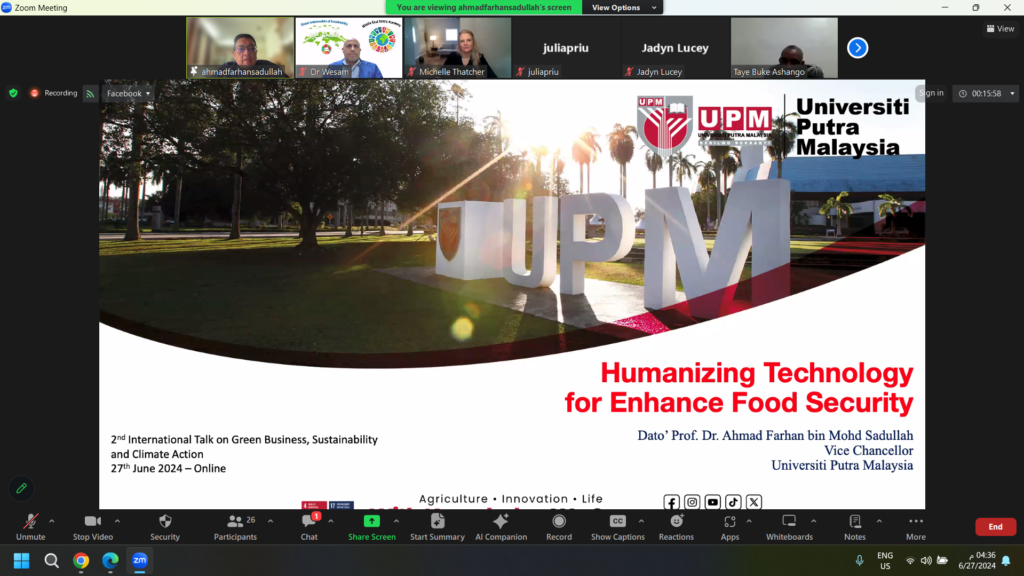
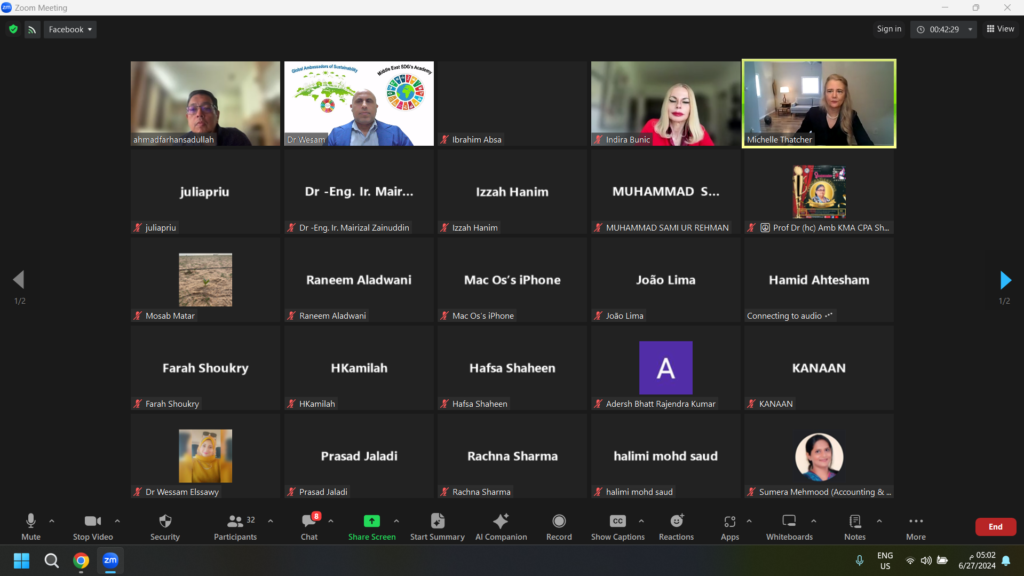
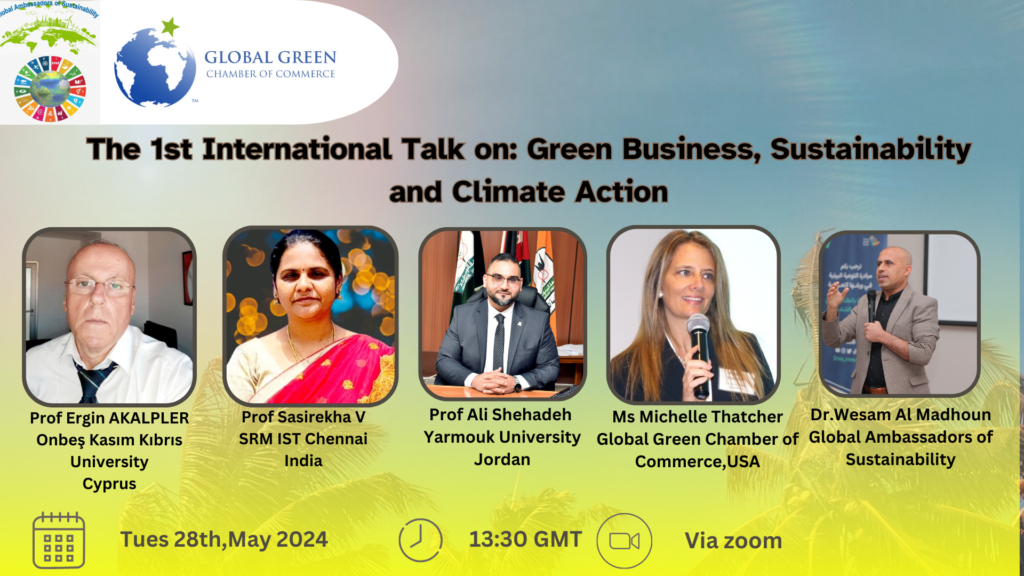
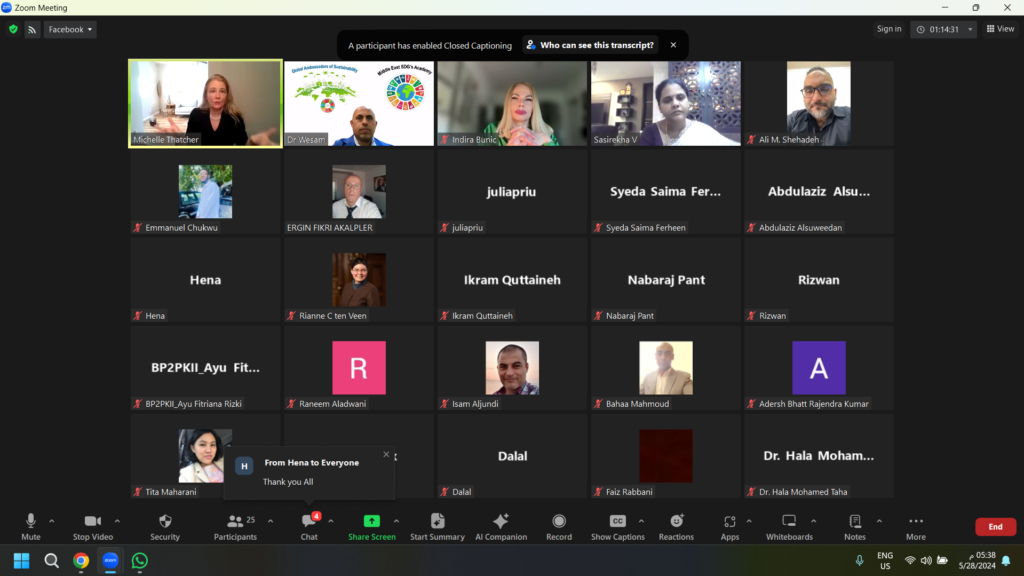
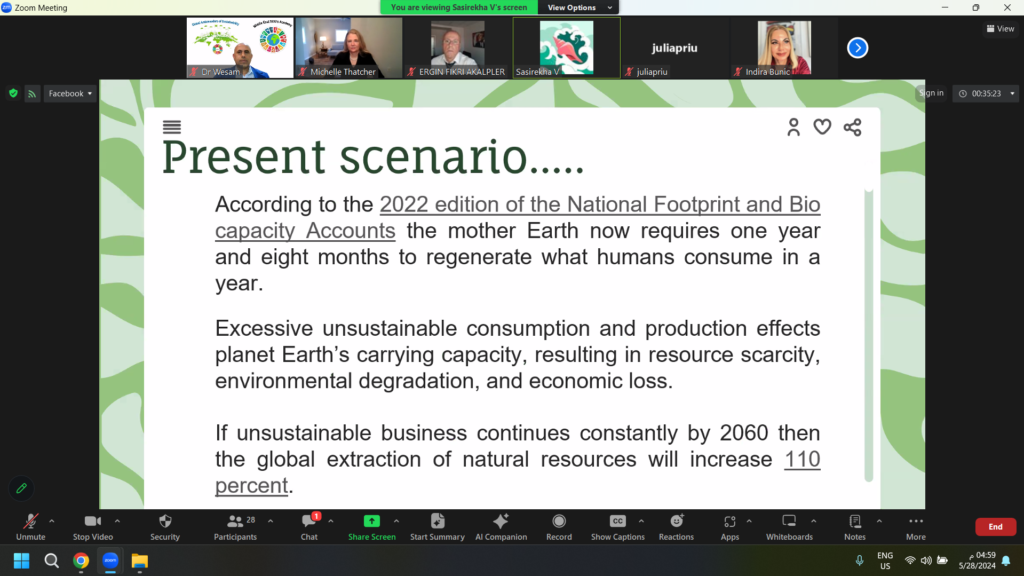
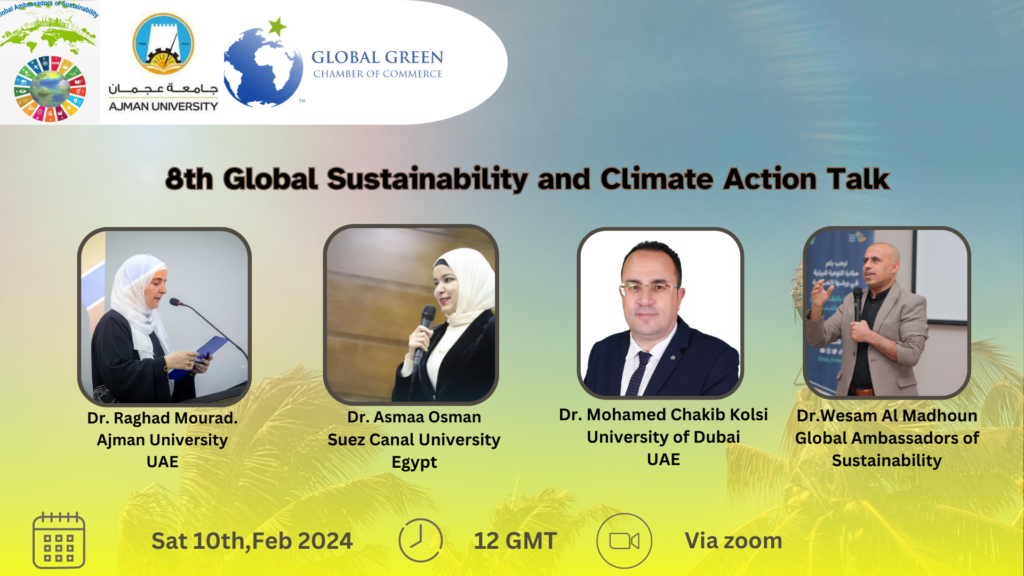
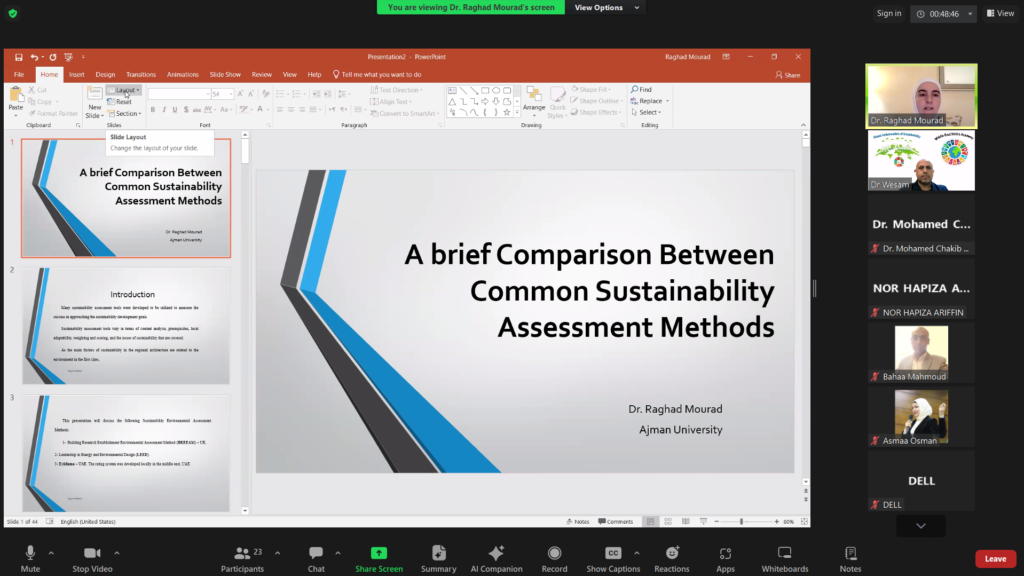
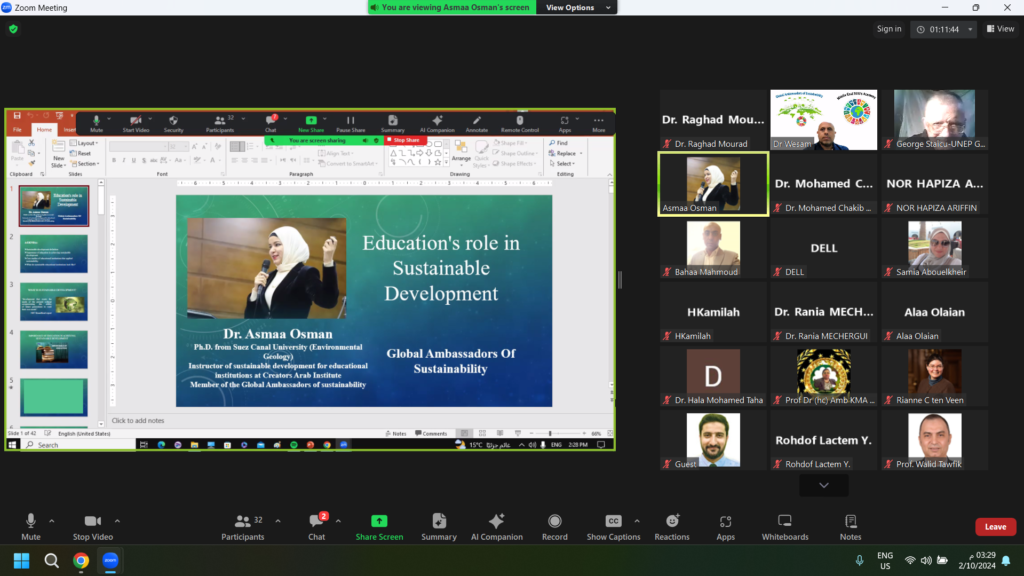
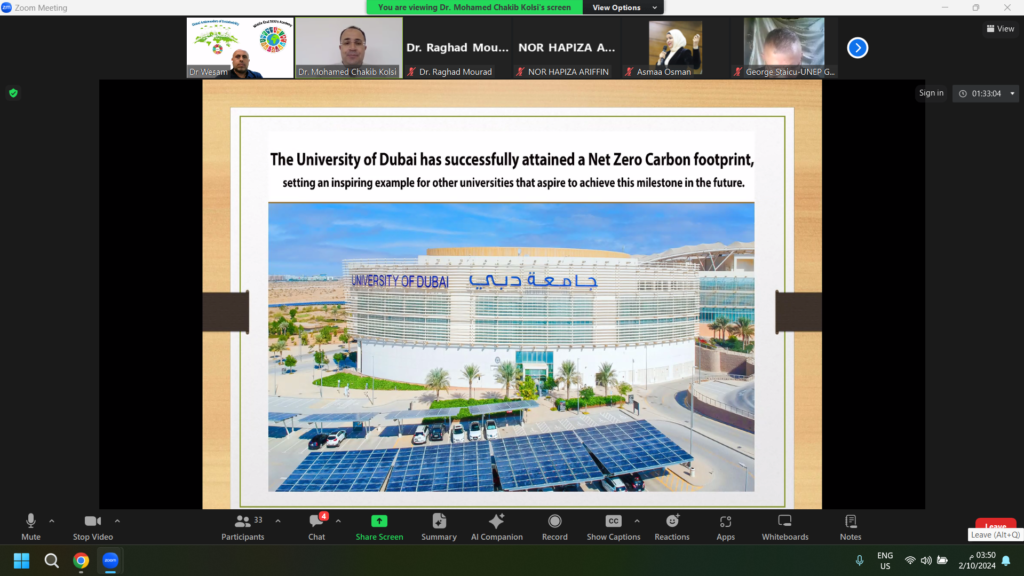
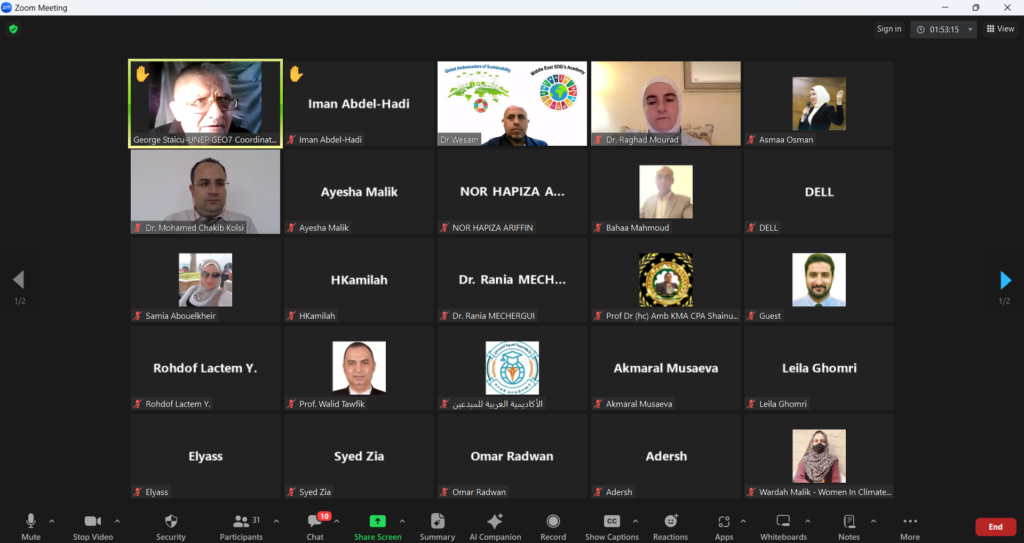
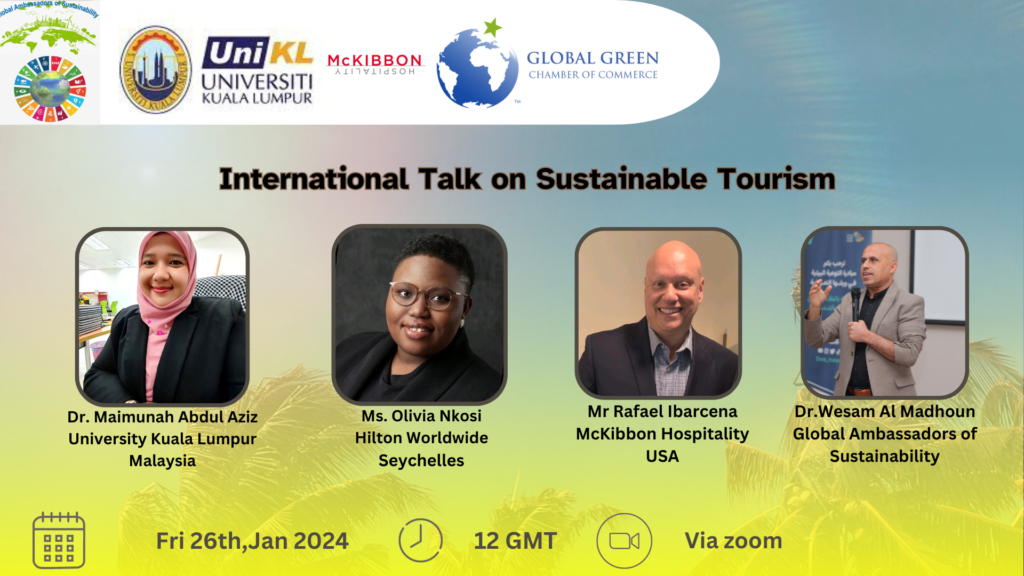
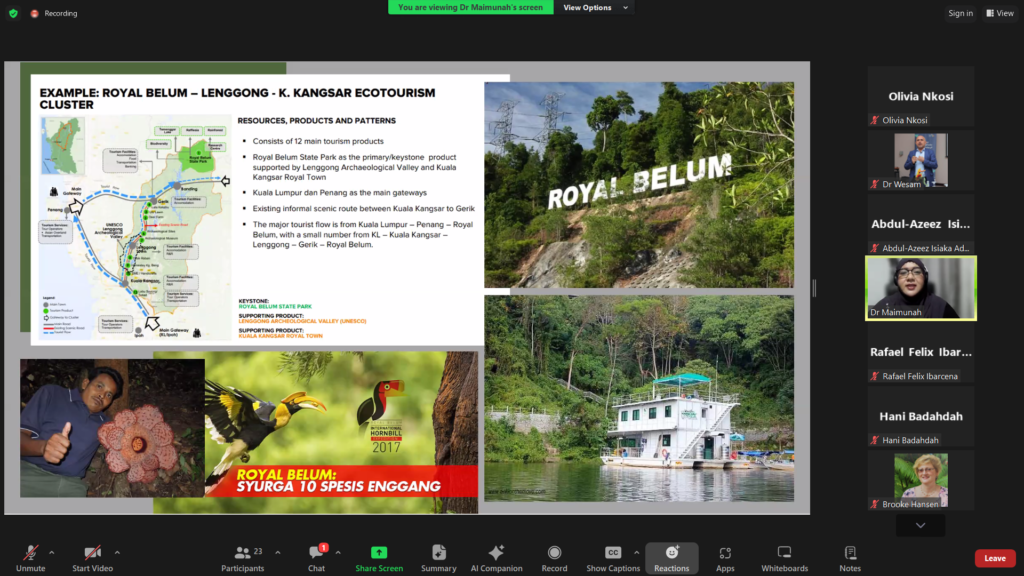
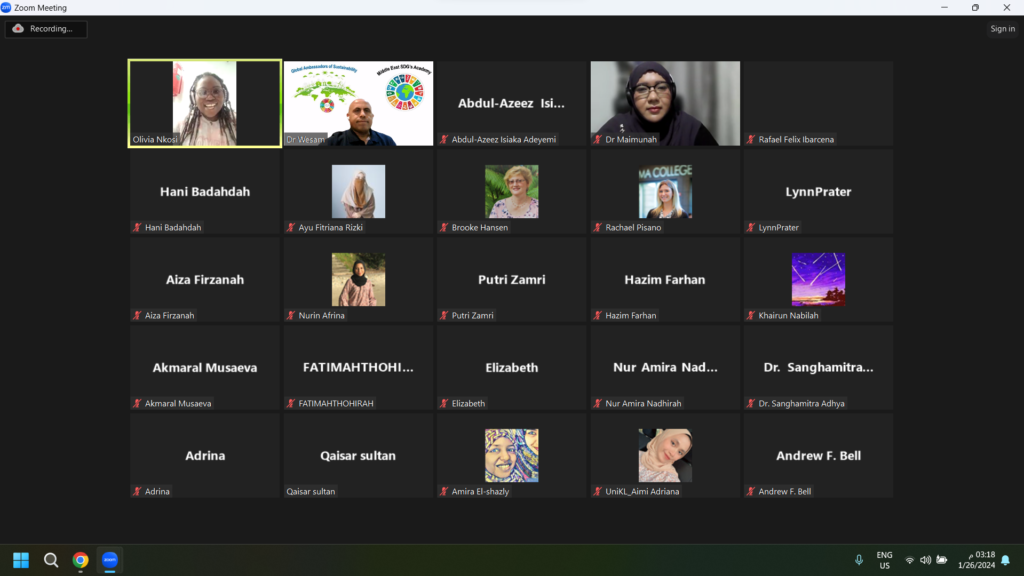
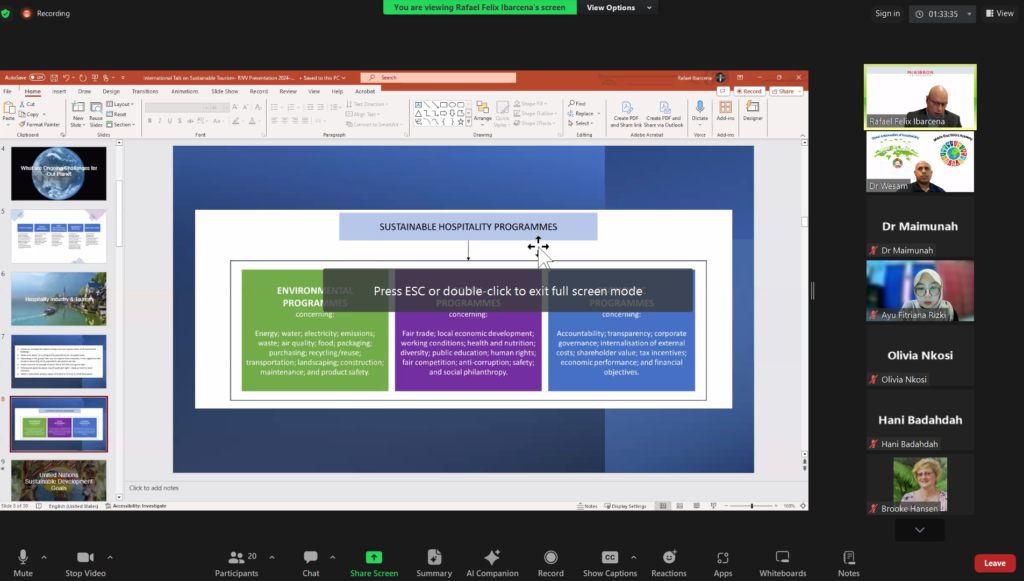
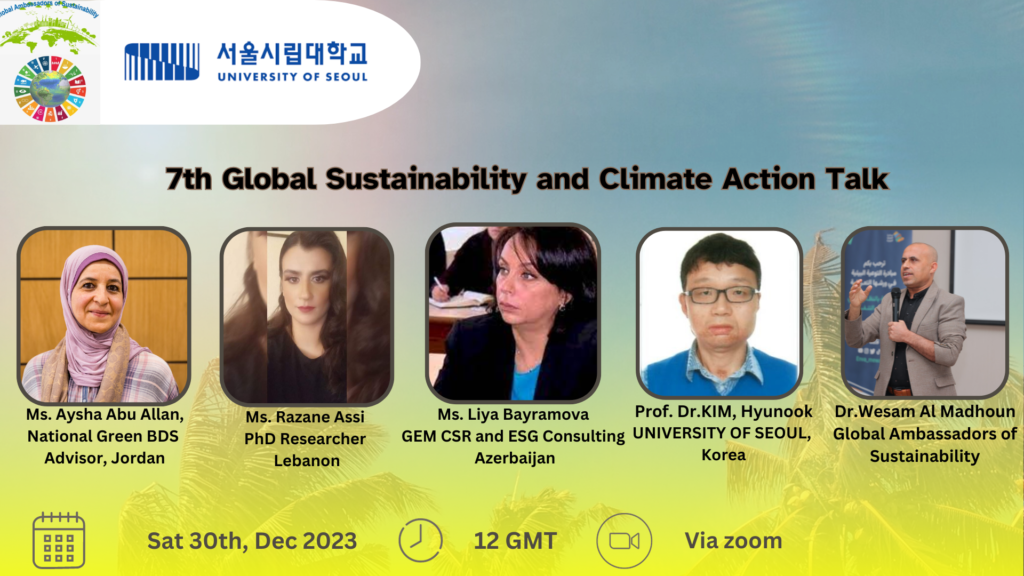
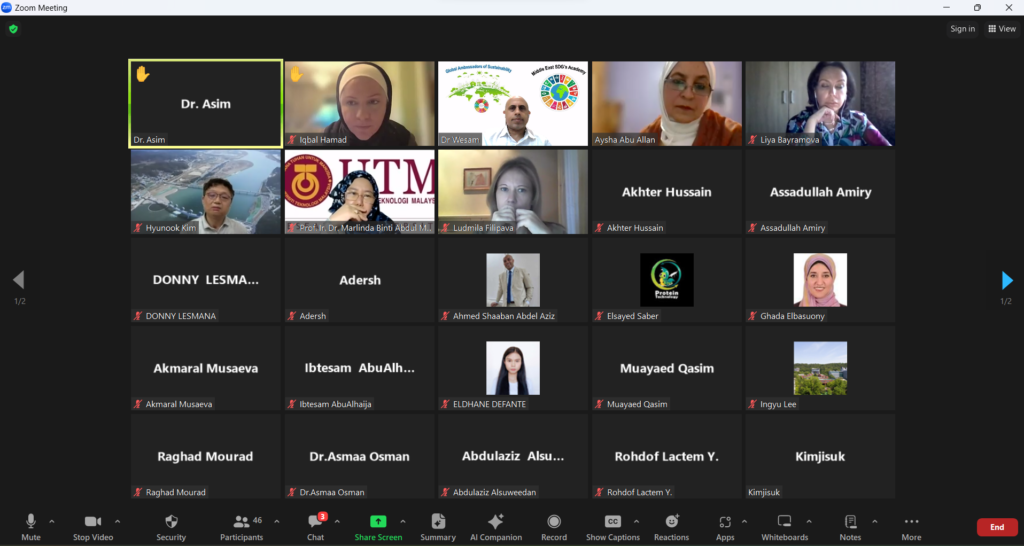
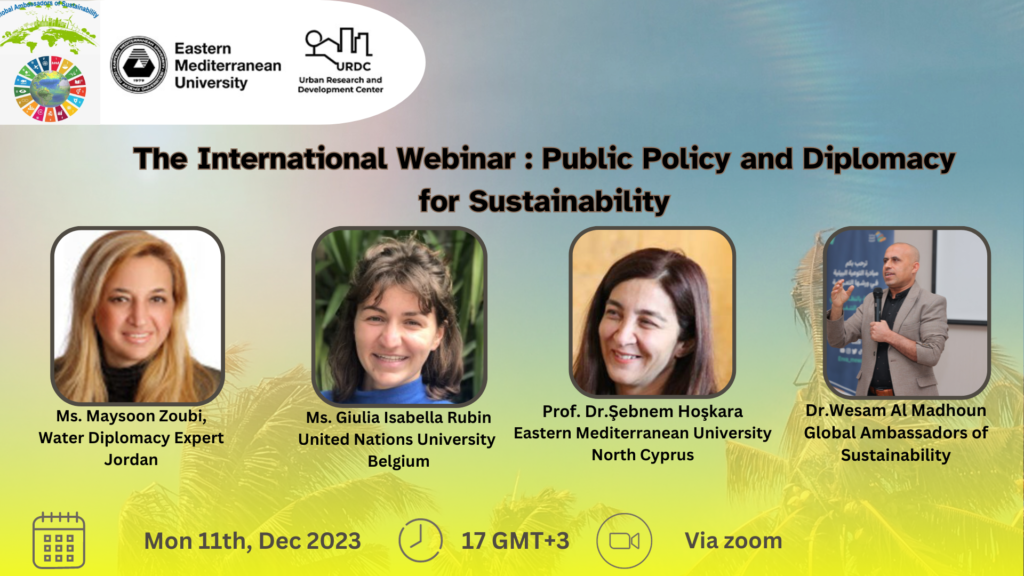
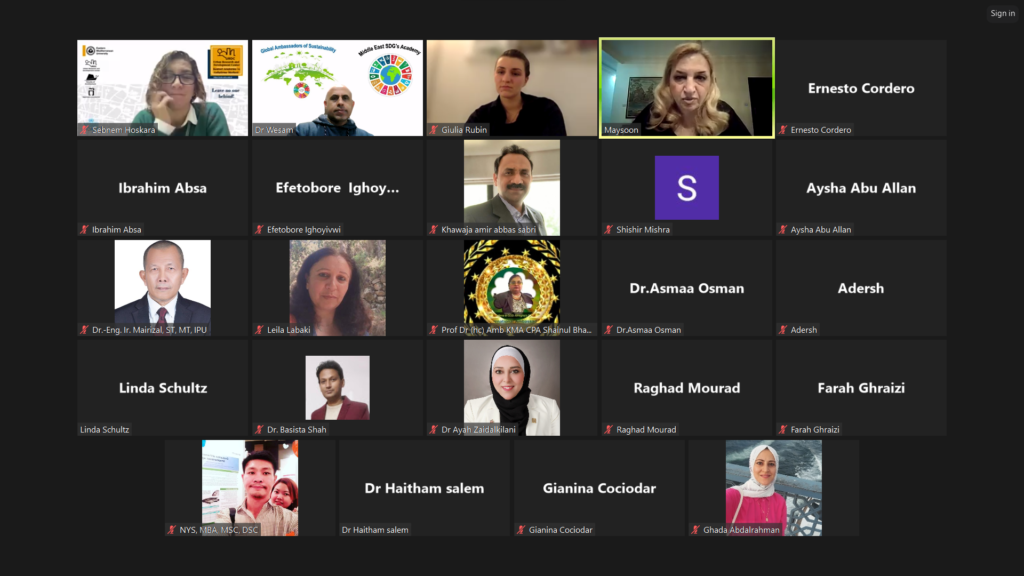
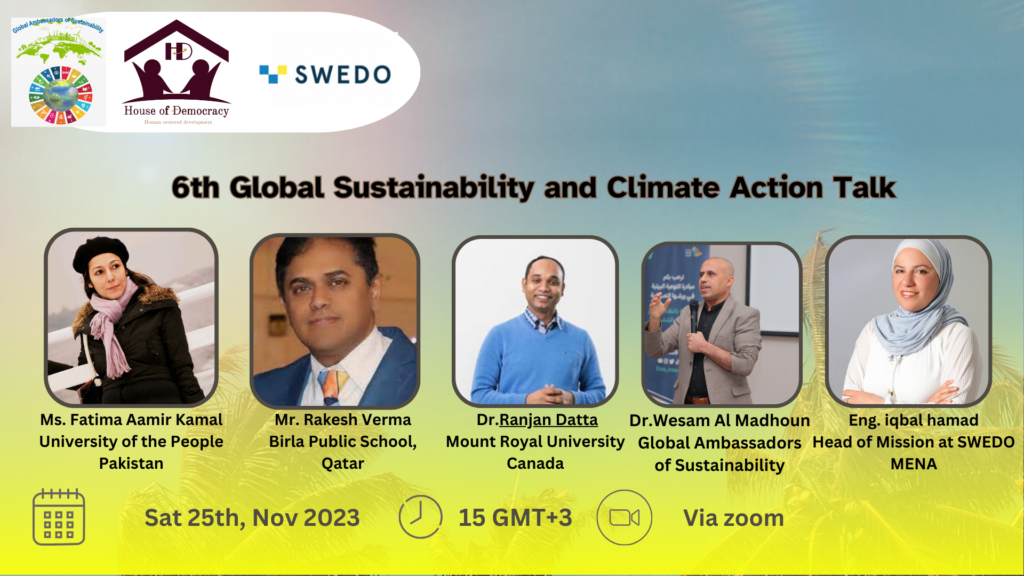
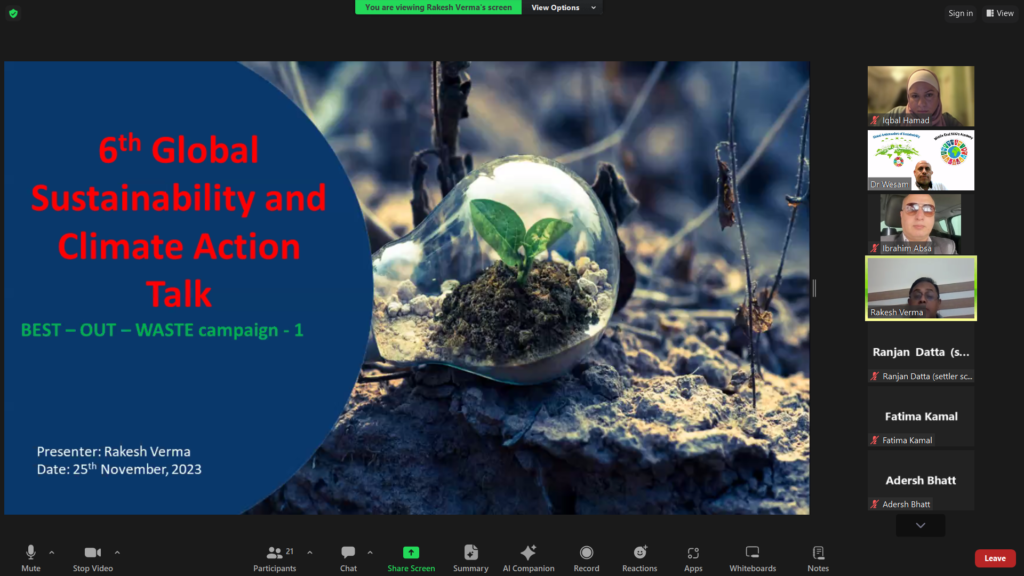
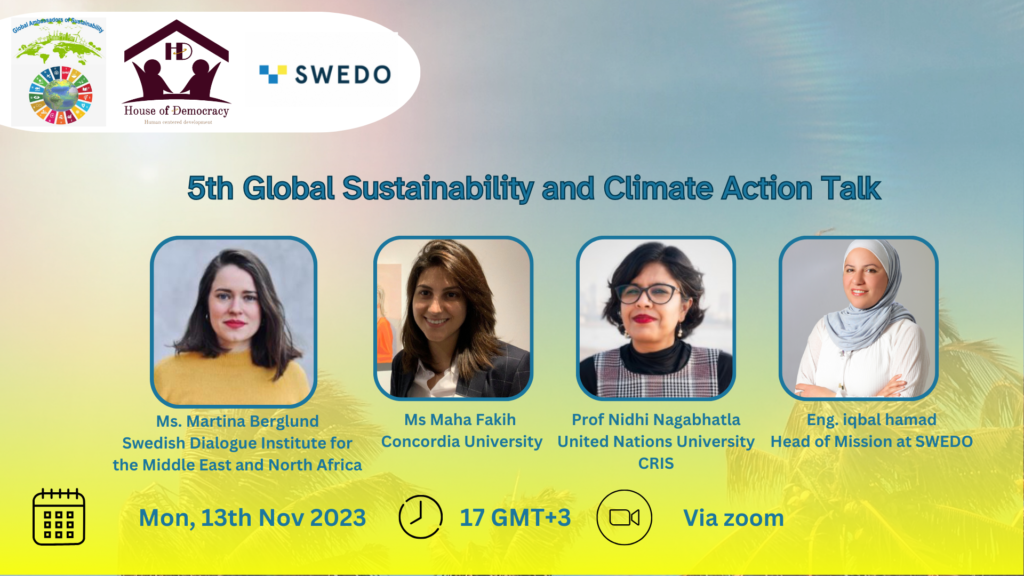
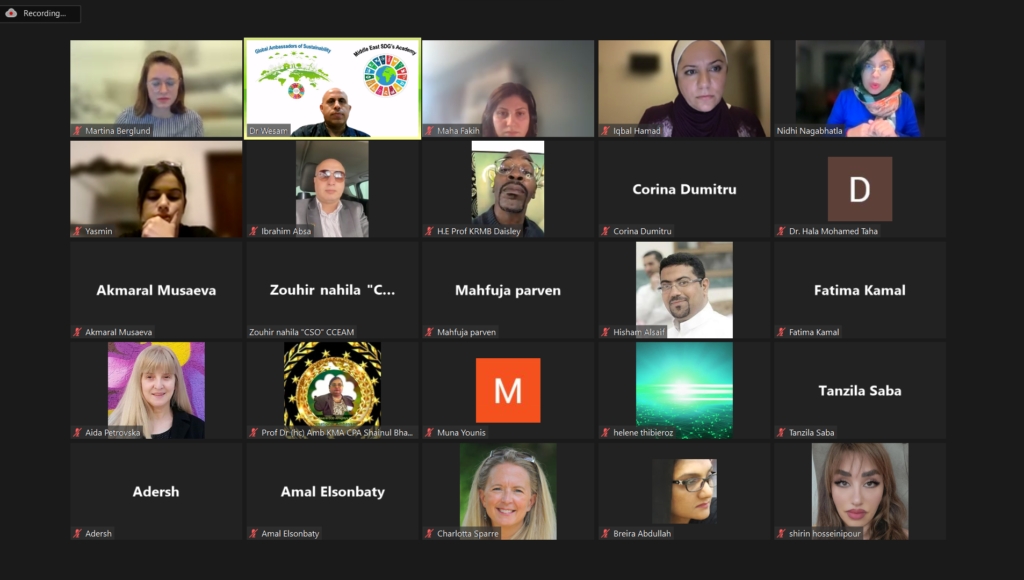
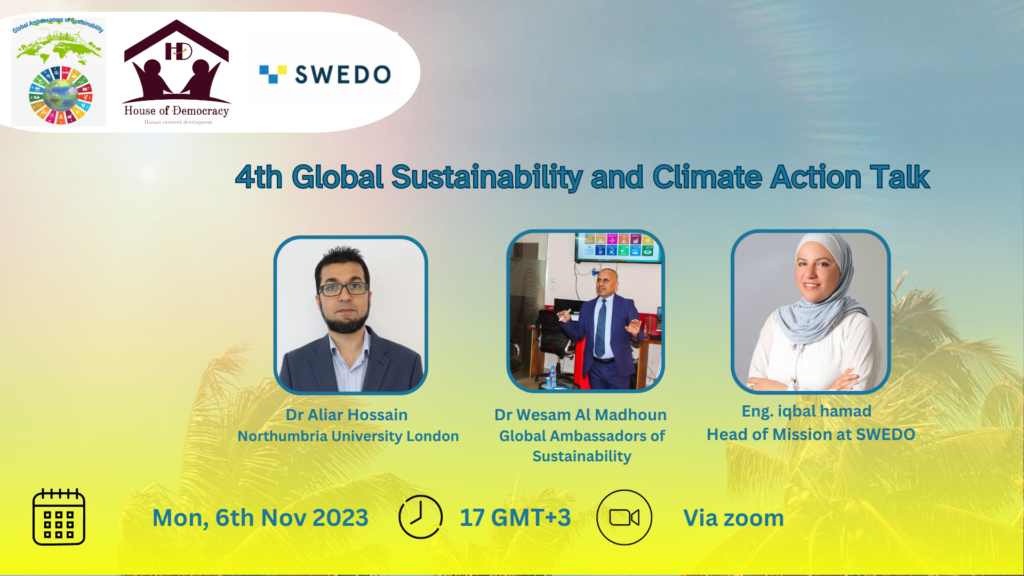
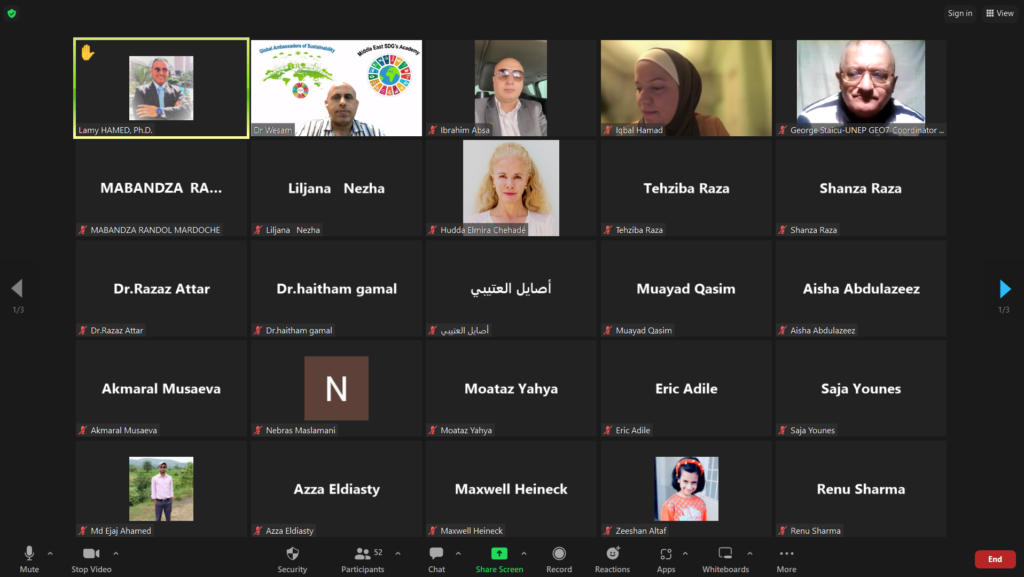
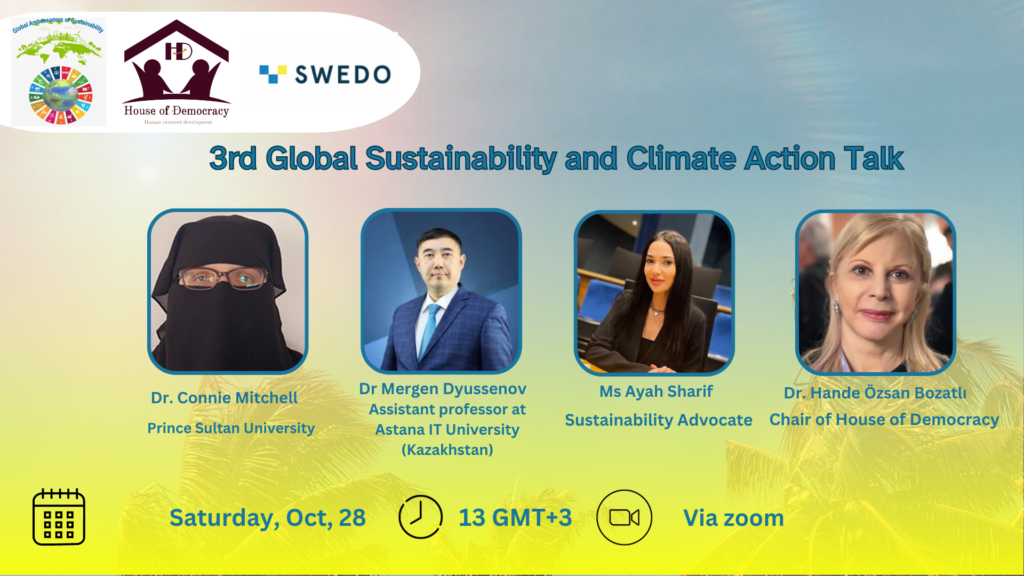
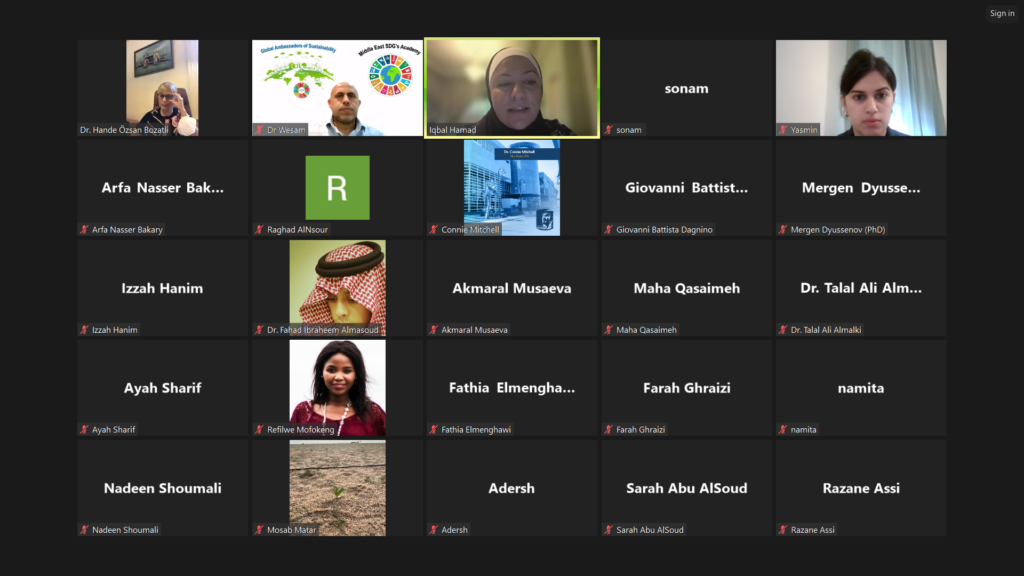

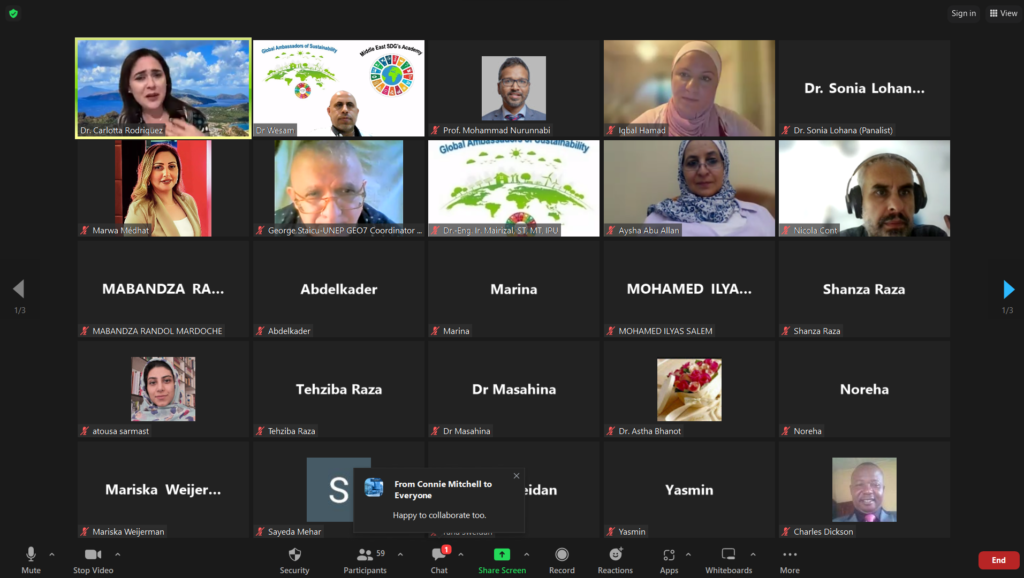
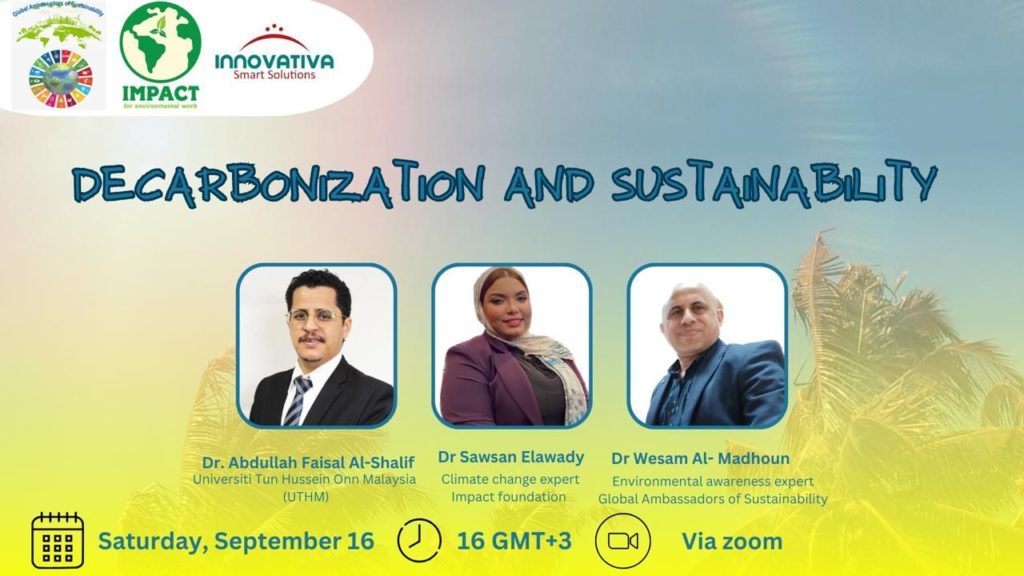
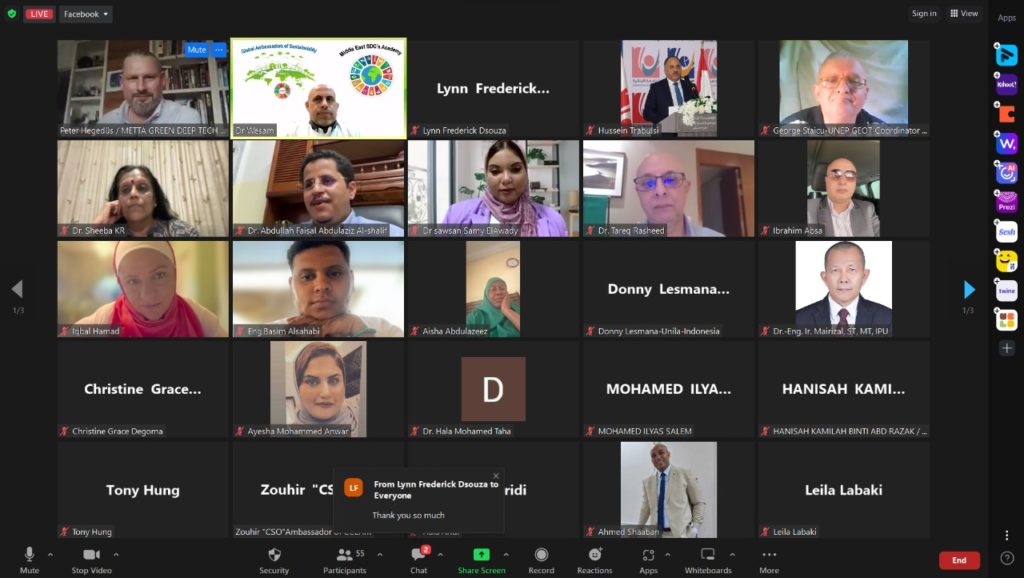
International Workshop: Community Local Response and Climate Change Adaptation, Sept 2023
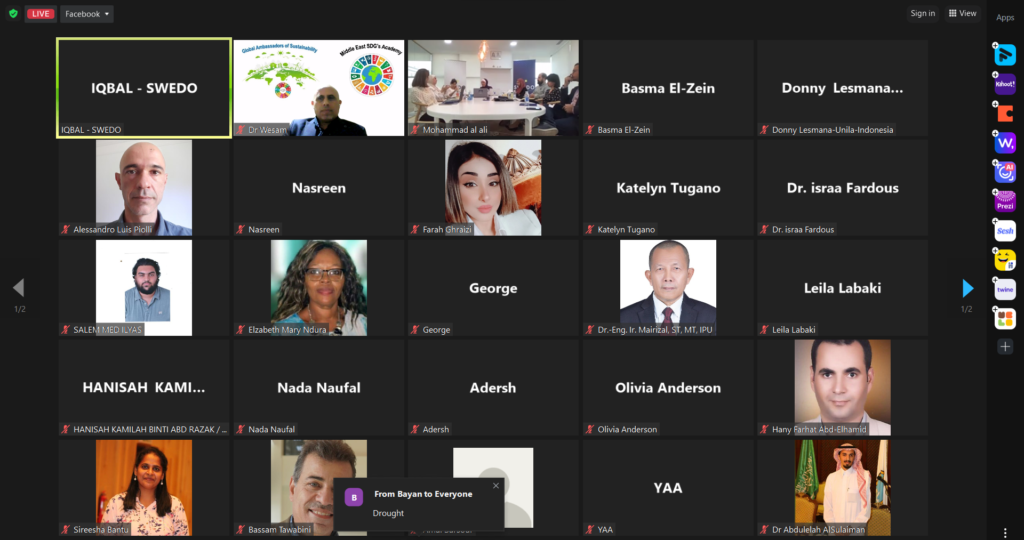
“The 4th International Forum: Academia for Sustainability.” ,Aug 2023
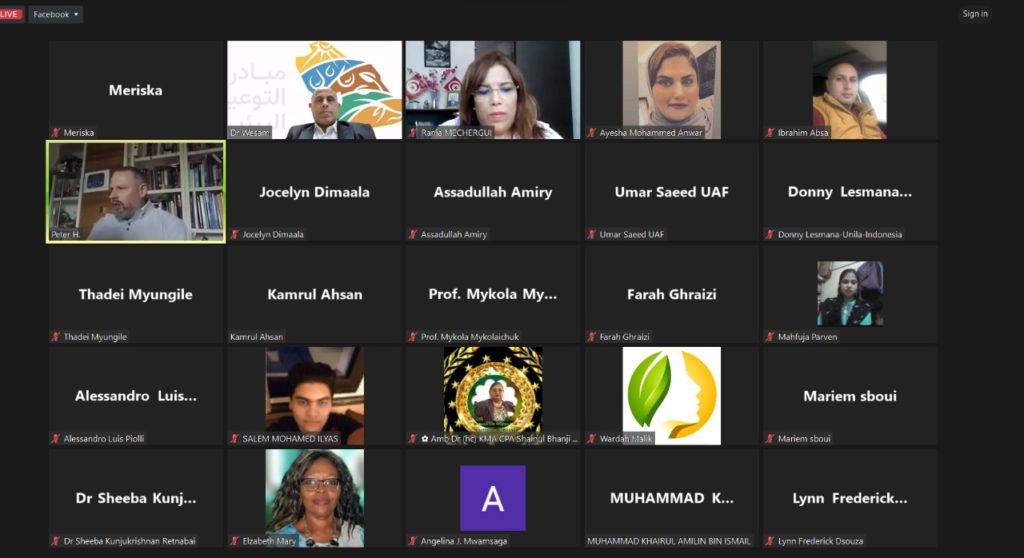
“The 3rd International Forum: Academia for Sustainability.” , July 2023
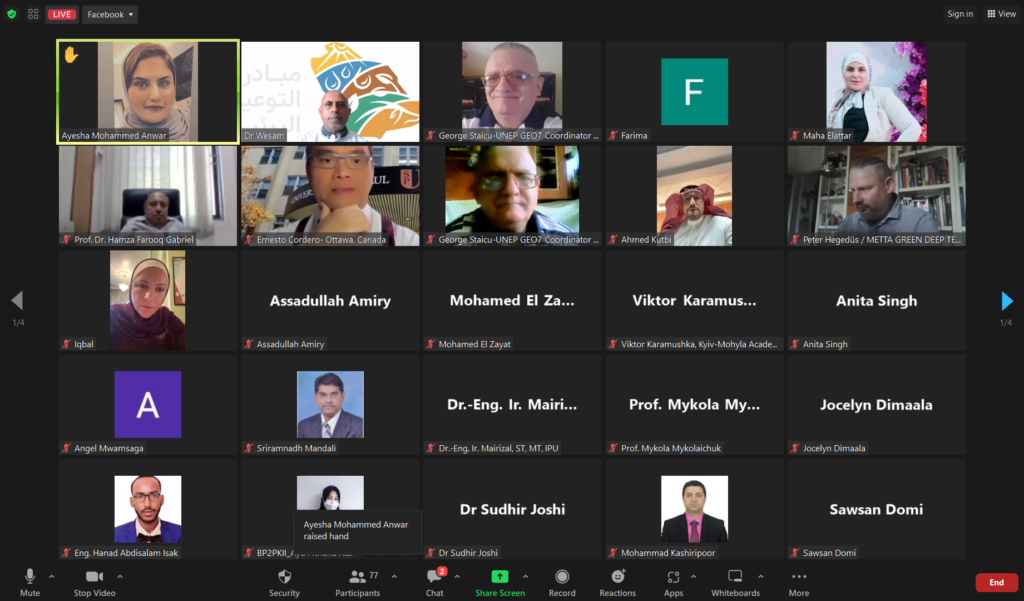
“The 2nd International Forum: Academia for Sustainability.”, June 2023
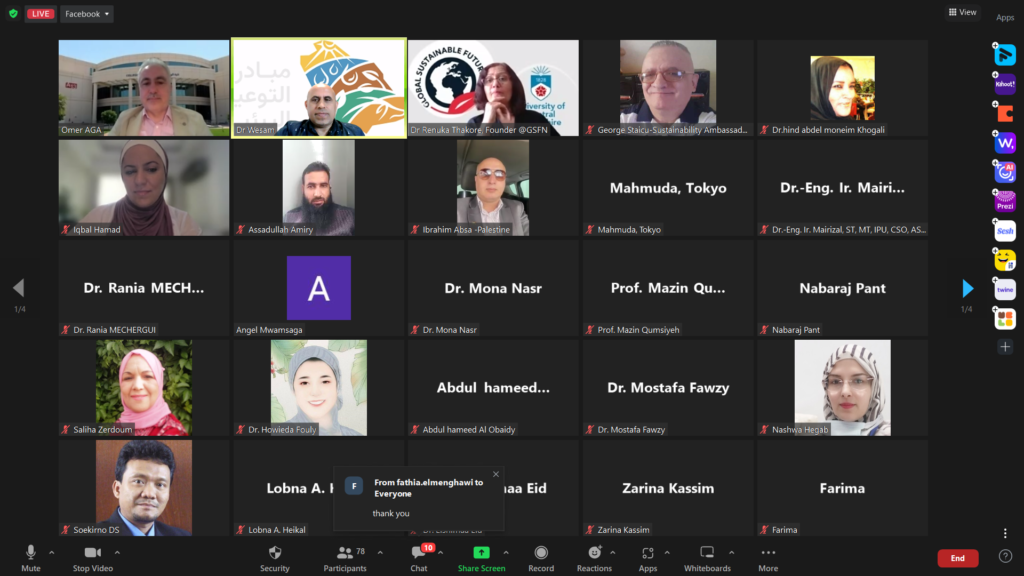
“The 1st International Forum: Academia for Sustainability.”, May 2023
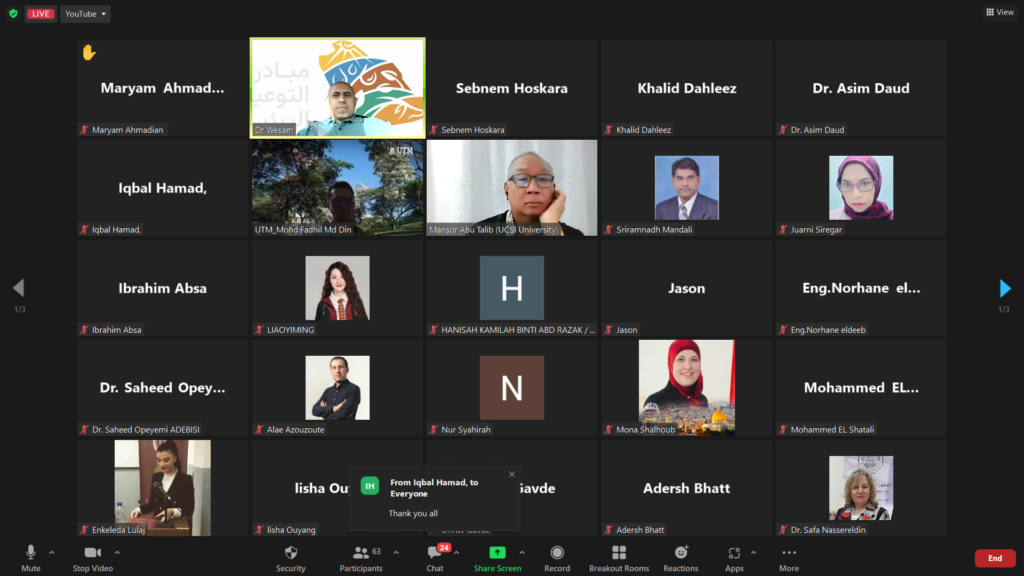
“Regional Cooperation for Sustainability”, May 2023
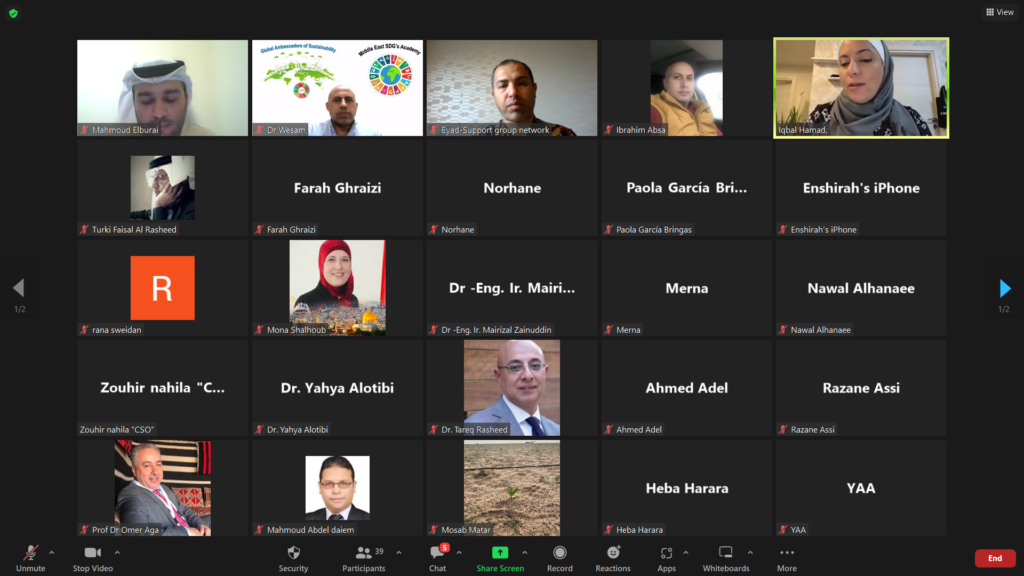
Digital Transformation for Sustainability in Education, April 2023
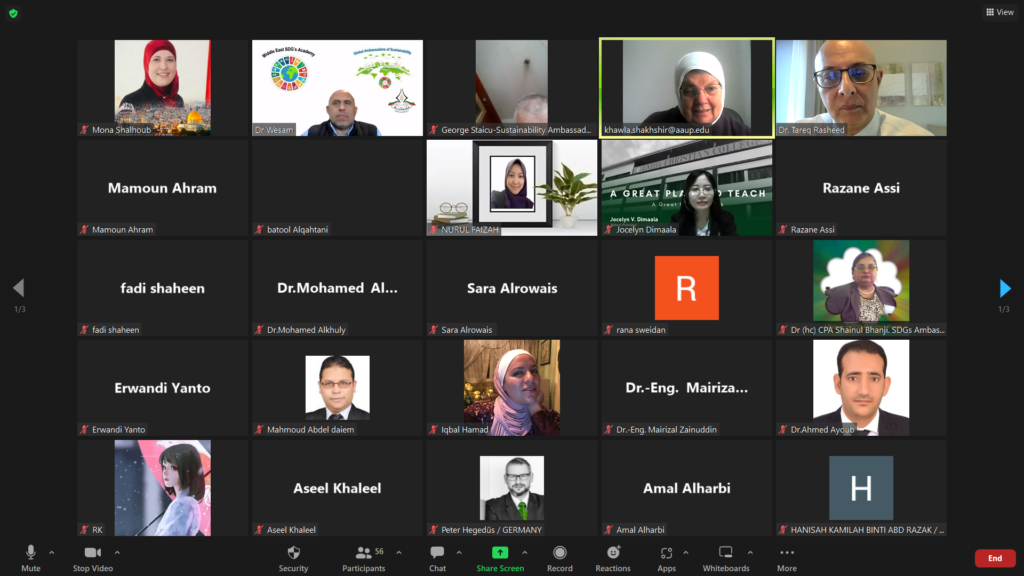
Pre Cop27 Climate Summit , Oct 2022
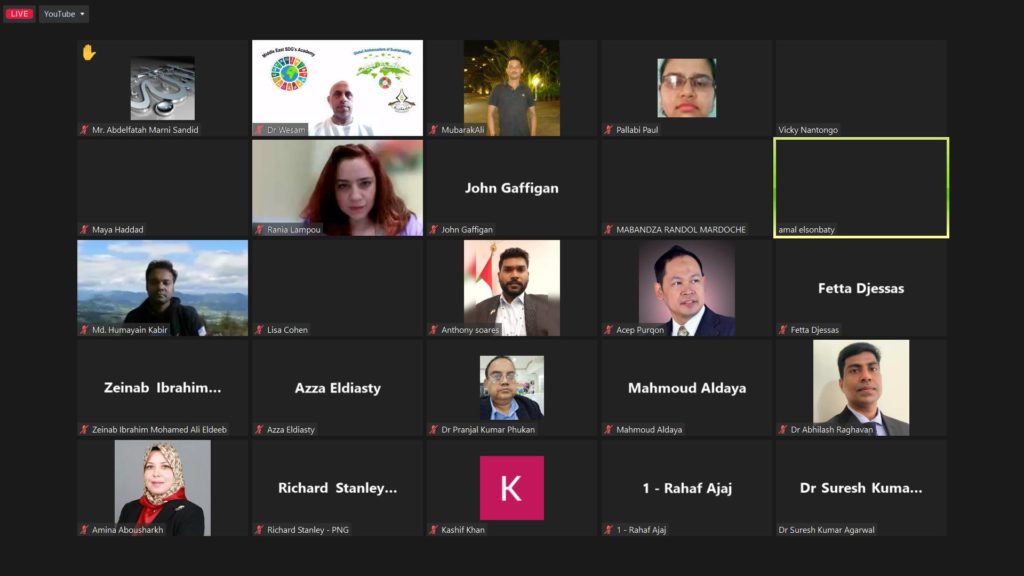
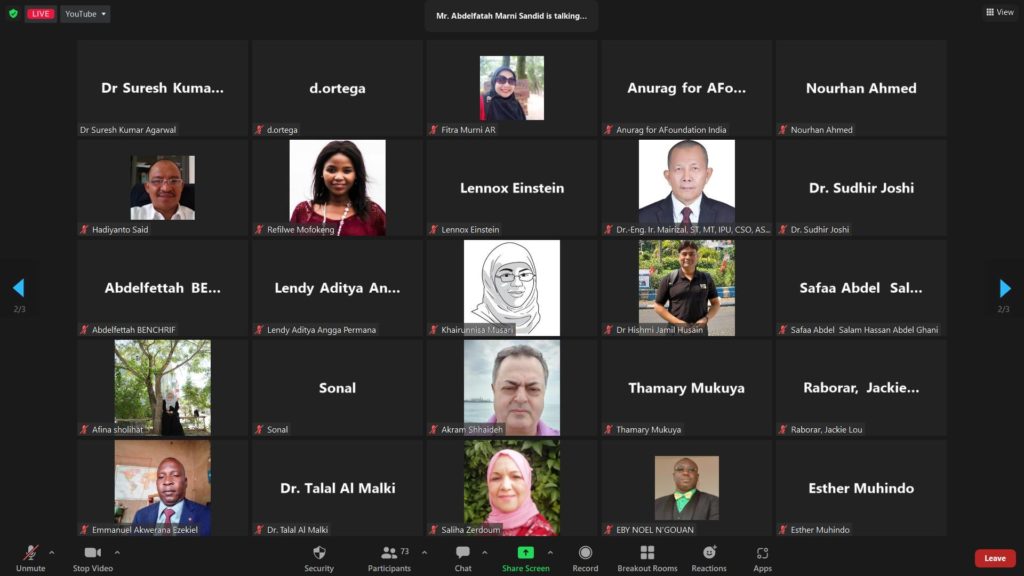
The 4th Global Forum-The City We Need: Is Managed Through Public Participation And Democratically Governed
Date: 08/03/2022
Time: 02:00-03:00 pm “Dubai Time”
The Forum hosted international experts and practitioners to discuss “The City We Need is participatory”. It promotes effective partnerships and active engagement by all members of society and partners (public, private and civil society). It safeguards local democracy by encouraging participation, transparency and accountability. The City We Need cultivates a strong sense of community. Its inhabitants are equipped with the knowledge and means to express their views on issues affecting their quality of life.
The 1st Speaker:
Professor Dato’ Dr. Ahmad Farhan Mohd Sadullah from Universiti Sains Malaysia
The 2nd Speaker:
Dr. Rasha Sayed Mahmoud from Birmingham City University
Topics Covered:
The 1st speaker “Prof Farhan” discussed issues related to localization and outcome-based approach for mobility: Malaysia experience in empowering communities and local authorities.
While the 2nd speaker “Dr Rasha” talked about Public Participation & Democracy Governed, Public acceptance and “ownership” derive from public involvement.
Participants List
There were 60 participants who joined the forum at different times during the session. The participants were from 21 countries as follow: Afghanistan, Brazil, Namibia, Indonesia, India, Ghana, Philippines, Pakistan, Bangladesh, Nigeria, Palestine, Egypt, United Arab Emirates, Cameroon, Malaysia, Sudan, Canada, Sierra Leone, Georgia, Lebanon, Tunisia and Jordan.
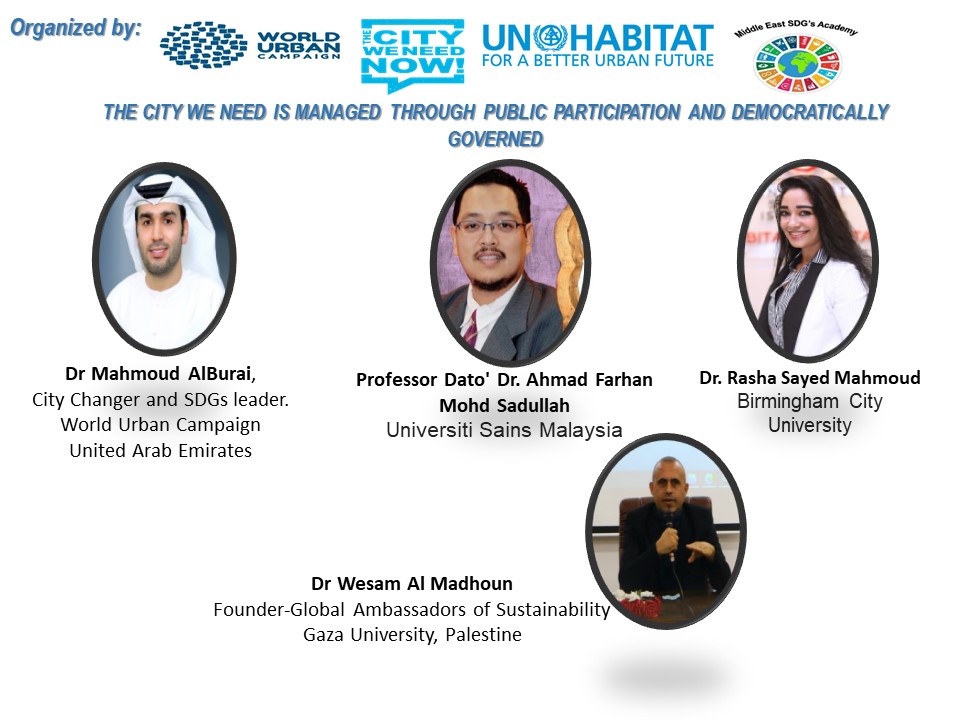
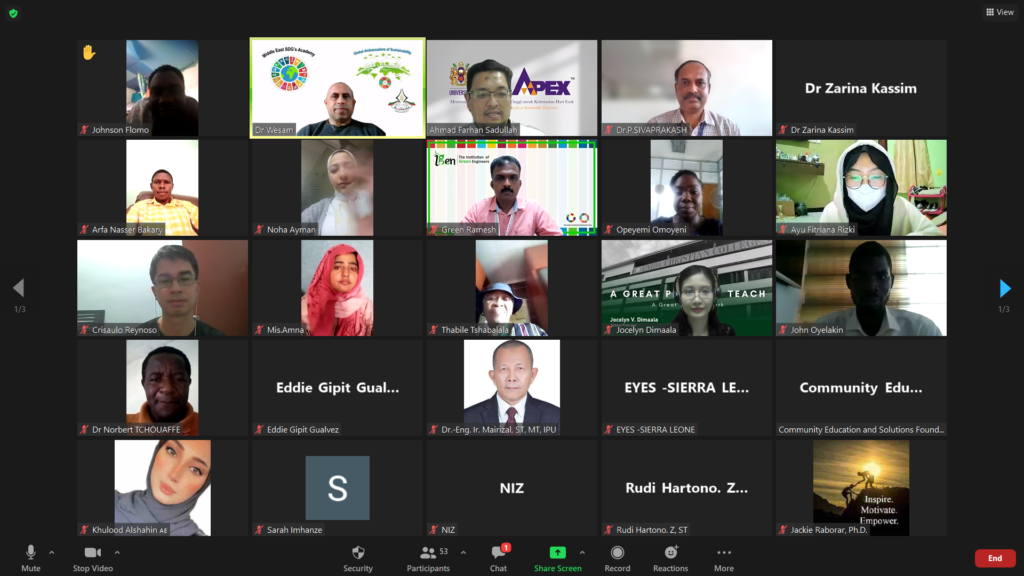
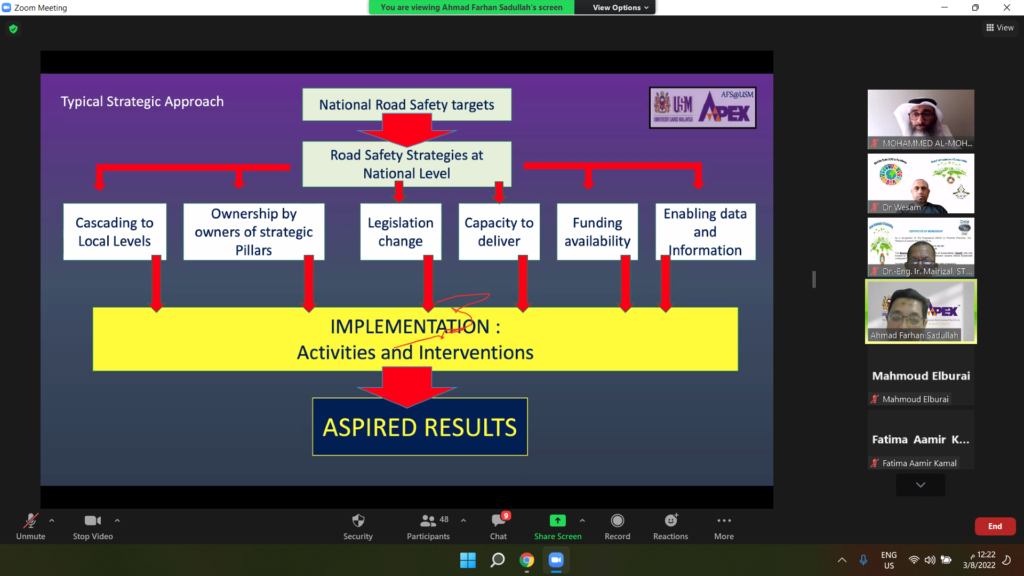
The 3rd Global Forum-The City We Need: INCLUSIVE AND PROMOTES GENDER EQUALITY
Date: 22/02/2022
Time: 02:00-03:00 pm “Dubai Time”
The Forum hosted international experts and practitioners to discuss The City We Need which is people-centered, ethical, and just in its social, physical and economic dimensions. It eliminates all physical, spatial, and policy forms of segregation, discrimination and exclusion. It values the lives and potential of all inhabitants, children, the poor, people with disabilities, older persons, and other disadvantaged groups.
The 1st Speaker:
Ms.Marjorie Beazer, Founder and Executive Director, Center for PAJS, Antigua & Barbuda.
The 2nd Speaker:
Ms.Rayan Almasri, Technical Specialist, Women Economic Empowerment, Lebanon
Topics Covered:
The 1st speaker “Ms.Marjorie” discussed issues related to inclusiveness and gender equality in the Caribbean region.
While the 2nd speaker “Ms.Rayan” talked about the challenges of gender equality in Lebanon, including norms, culture and religion.
Participants List
There were 59 participants who joined the forum at different times during the session. The participants were from 19 countries as follow: Indonesia, India, Ghana, Philippines, Pakistan, Bangladesh, Nigeria, Palestine, Egypt, United Arab Emirates, Cameroon, Malaysia, Antigua & Barbuda, Nepal, Sudan, Canada, Sierra Leone, Georgia, Lebanon.
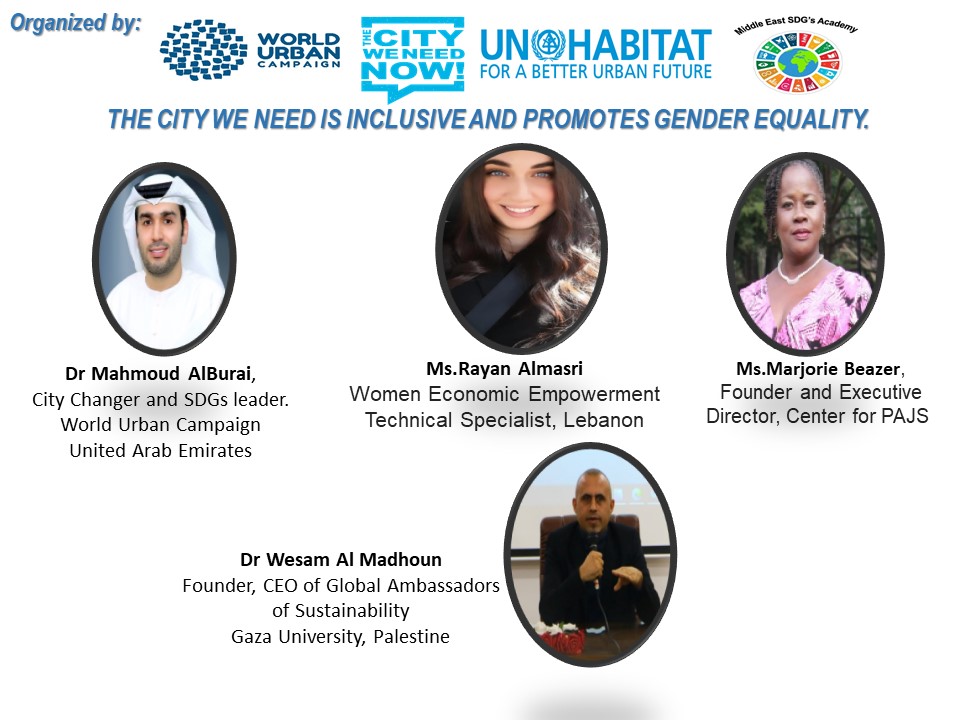
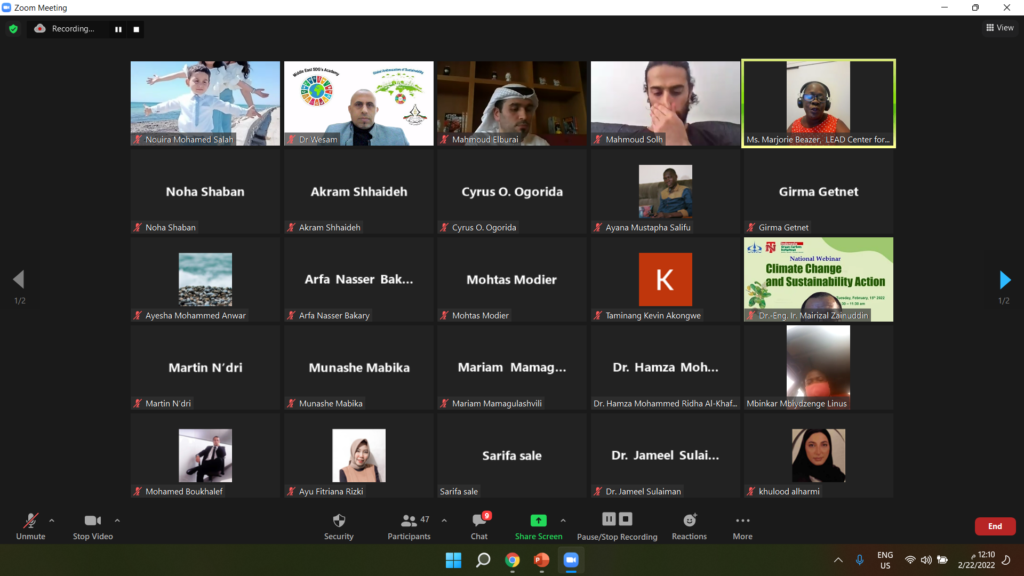
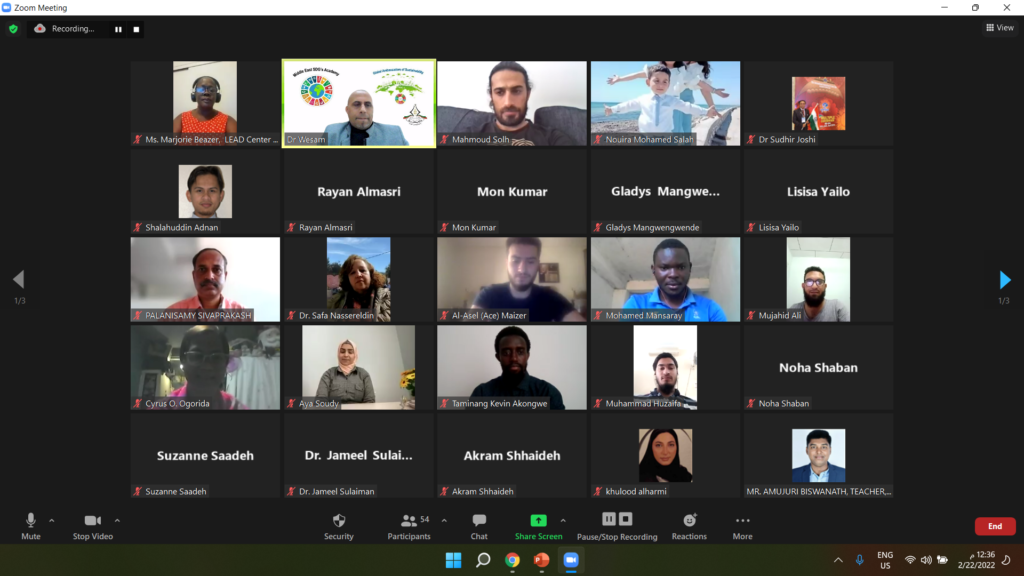
The 2nd Global Forum-The City We Need: RESILIENT, LOW-CARBON AND ADAPTS TO CLIMATE CHANGE.
Date: 08/02/2022
Time: 02:00-03:00 pm “Dubai Time”
The Forum hosted international experts and practitioners to discuss The City We Need which is designed to be resilient, continuously assessing risks and building the capacities of local stakeholders, individuals and communities to prepare for, absorb, recover from and learn from acute shocks and chronic stresses, both natural and anthropogenic.
The 1st Speaker:
Ms.Tatiana Antonelli Abella, Goumbook Founder & Managing Director, UAE.
The 2nd Speaker:
Dr Abdul-Azeez , Modibbo Adama University, Yola. Adamawa State- Nigeria.
Topics Covered:
The 1st speaker “Ms Tatiana” discussed climate change mitigation and adaptation strategies in the United Arab Emirates.
While the 2nd speaker “Dr Abdul Azeez” talked about the Low carbon policies and strategies in Nigeria and Mentioned case studies from Malaysia as well.
Participants List
There were 47 participants who joined the forum at different times during the session. The participants were from 17 countries as follow: Indonesia, Ethiopia, India, Ghana, Philippines, Pakistan, Bangladesh, Nigeria, Palestine, Egypt, United Arab Emirates, Liberia, Iraq, Trinidad and Tobago, Somalia, Cameroon and Afghanistan.

The 1st Global Forum :”The City We Need: Free From Violence and Foster Peace”
Date: 25/01/2022
Time: 02:00-03:00 pm “Dubai Time”
The Forum hosted international experts and practitioners to discuss The City We Need which is free from violence, conflict and crime. It is welcoming night and day, inviting all people to use its streets, parks, open and public spaces, and transit without fear. It guarantees the safety of women and girls, older persons, and persons with disabilities in both public and workplaces.
The 1st Speaker:
Mr NSN Murty, Partner & Leader, Smart Cities, PwC India
The 2nd Speaker:
Ms. Suzanne Saadeh, Founder of Youth Peace and Mediation, Lebanon
Topics Covered:
The 1st speaker “Mr Murty” discussed Safety and security related issues:” urban planning, placemaking strategy, mixed usage, police action, streetlights, mobile network, public transport, road infrastructure, traffic management.
While the 2nd speaker “Ms Suzanne” talked about the challenges facing the refugees in Lebanon in terms of education and employment.
Participants List
There were 90 participants who joined the forum at different times during the session. The participants were from 23 countries as follow: Indonesia, Ethiopia, India, Tunisia, Ghana, Philippines, Pakistan, Barbados, Bangladesh, Nigeria, Sudan, Malaysia, Palestine, Ivory Coast, Algeria, Georgia, Kenya, Jordan, Lebanon, Egypt, Australia, Syria, United Arab Emirates.
